If you're looking to fight heart disease, there are many foods you can add to your diet to help. While fruits and vegetables are essential and certainly make the list, they're not the only options.


In fact, there’s a wide variety of heart-friendly foods worth including in your meals. To kick off your journey to better heart health, we’ve put together a comprehensive list of great foods to try!
Chickpeas
Though small in size, chickpeas are rich in heart-healthy nutrients.
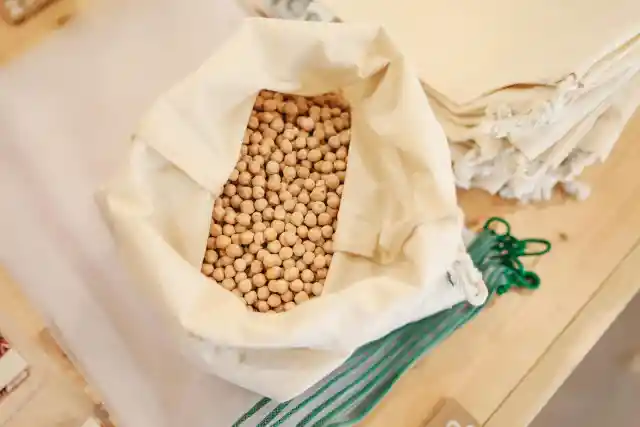

They’re a great source of fiber, potassium, and essential vitamins, all of which can help reduce cholesterol levels and decrease the risk of heart disease.
Coffee
Good news for coffee lovers—your favorite brew might actually benefit your heart.


Drinking coffee in moderation has been linked to a reduced risk of coronary heart disease, stroke, and heart failure. So go ahead and enjoy that cup at your go-to café!
Cranberries
Tasty and nutritious, cranberries are packed with antioxidants and essential nutrients.
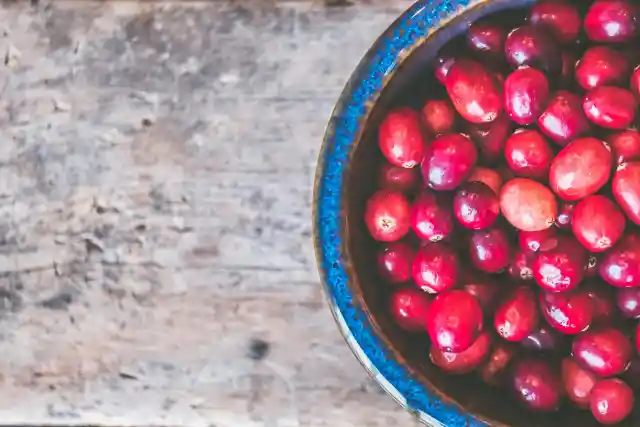
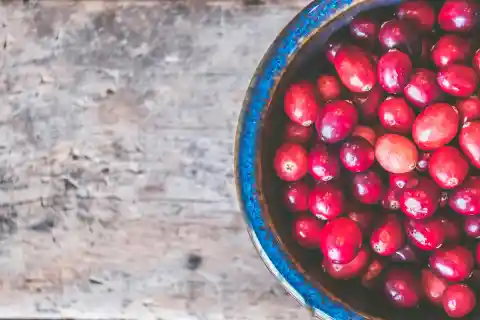
They're known to help reduce the risk of heart disease, which earns them a spot on this list. Beyond heart health, they also help prevent urinary tract infections and may lower the risk of gum disease, stomach ulcers, and certain cancers.
Figs
Figs deserve more recognition—they're a powerhouse of heart-friendly nutrients.
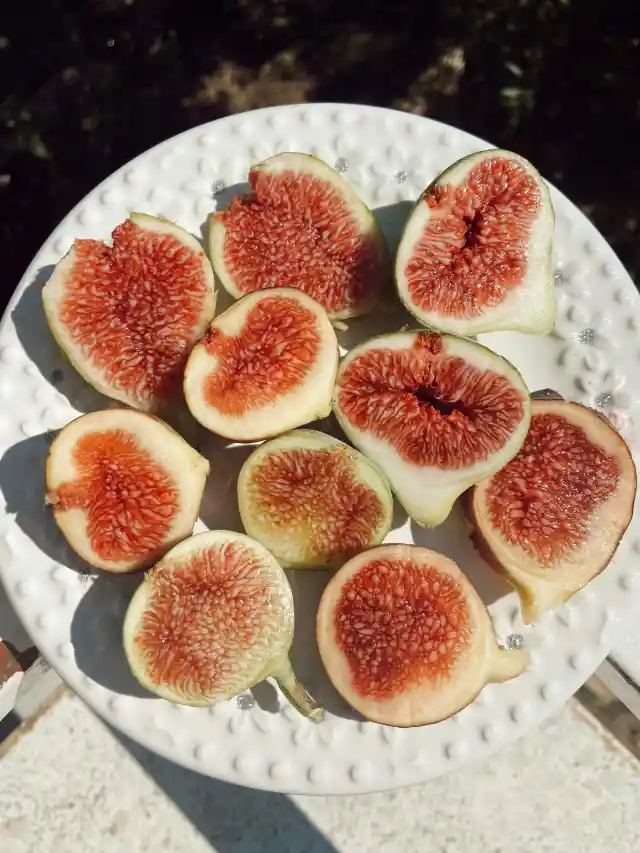
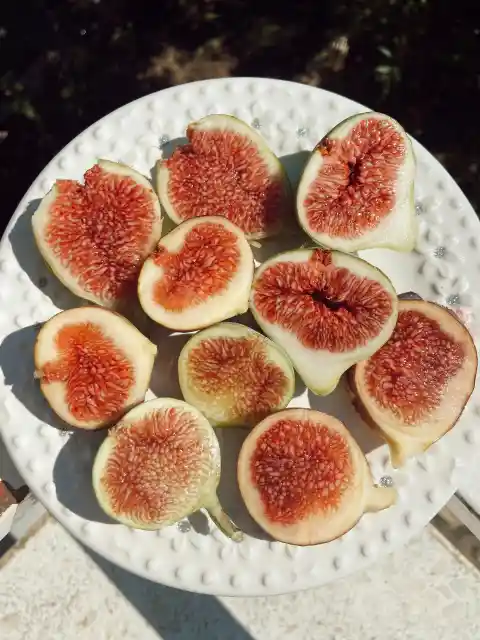
Naturally sweet and rich in calcium and fiber, figs support cardiovascular health and may even help counter some of the effects of heart disease.
Flax Seeds
If you're not a fan of fish or nuts but still want a good source of omega-3 fatty acids, flax seeds are a great alternative.
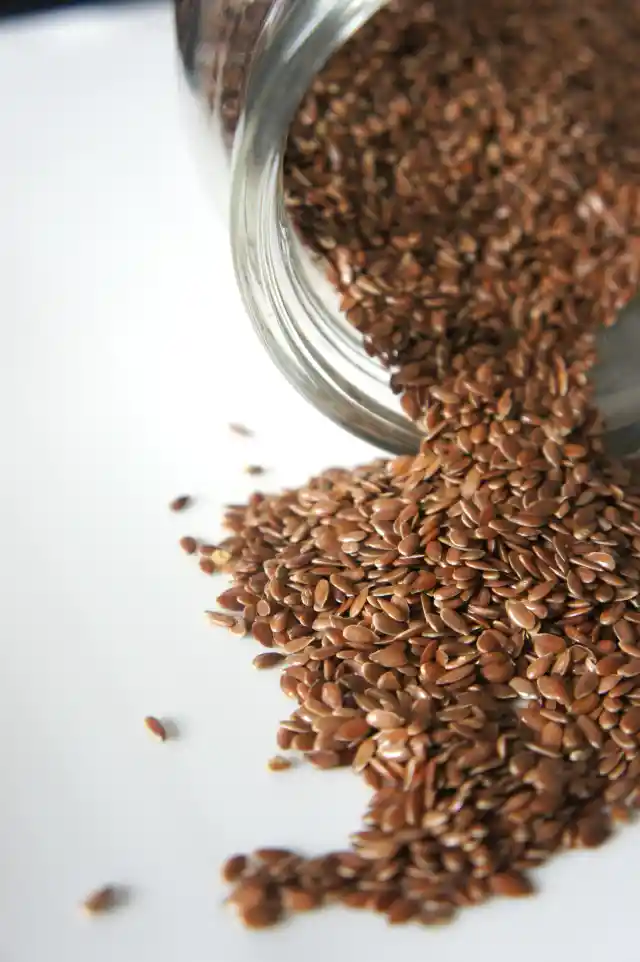
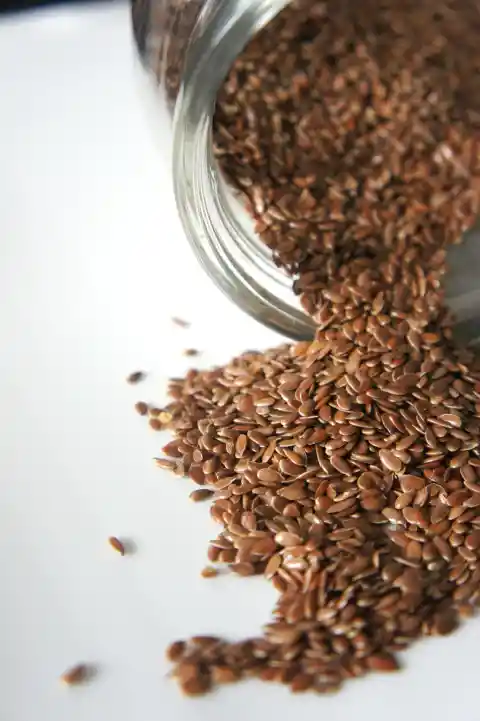
Often used as a topping, they’re rich in antioxidants, plant-based estrogen, and nutrients that support heart health.
Red Hot Chili Peppers
While Californication is a classic, we’re talking about the actual red hot chili peppers here.


These spicy peppers contain capsaicin, a compound known to help lower blood pressure and cholesterol—both key for maintaining a healthy heart. Just don’t go overboard and eat them whole!
Ginger
Good news for ginger enthusiasts—this aromatic spice does more than add flavor.


Consuming ginger regularly can help reduce the risk of cardiovascular issues such as high blood pressure and coronary heart disease.
Grapefruit
Grapefruit is packed with heart-healthy nutrients like fiber, potassium, lycopene, and choline.


It's an excellent choice for supporting cardiovascular health and is even featured in the DASH diet, which is designed to help lower blood pressure.
Green Tea
Refreshing and full of antioxidants, green tea supports heart health by preventing plaque buildup in the arteries.


It also helps reduce LDL cholesterol and triglyceride levels. Sip on a cup to give your heart a healthy boost!
Kidney Beans
Packed with magnesium, protein, and folate, kidney beans are low in fat and high in fiber—making them a heart-smart choice.
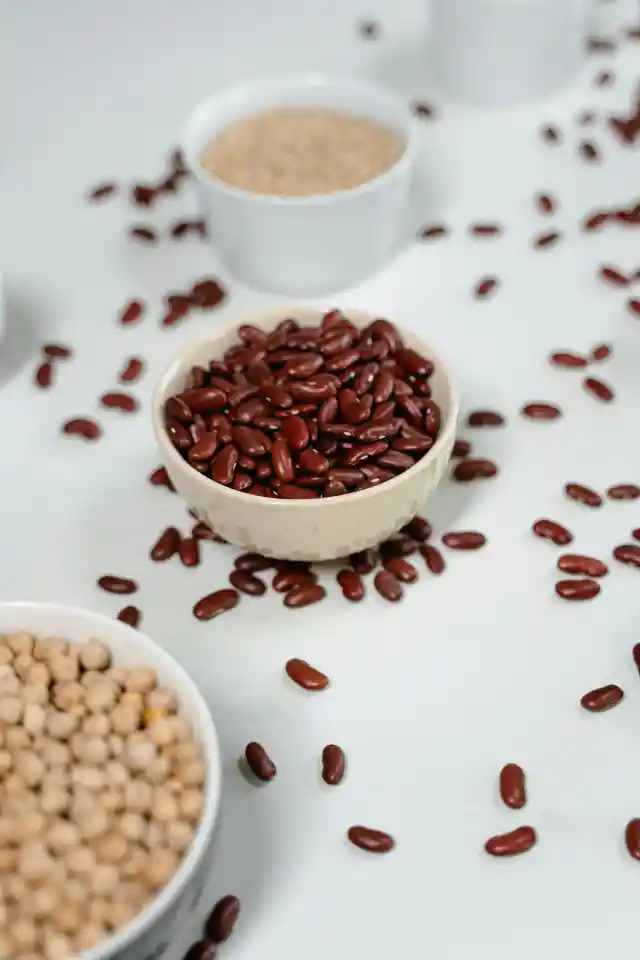
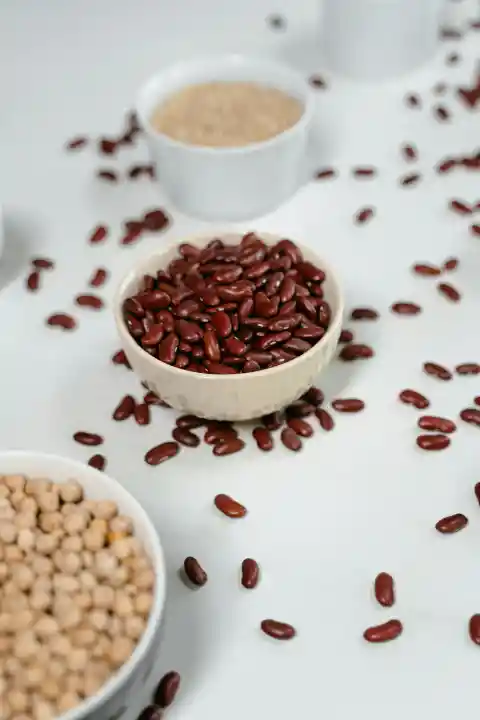
They help lower homocysteine levels, which can reduce the risk of heart disease, strokes, and even certain cancers. Try tossing them into soups or stews for a nutritious boost!
Oranges
Oranges are a favorite for many—not only do they refresh and hydrate, but they also aid in absorbing cholesterol from your meals.
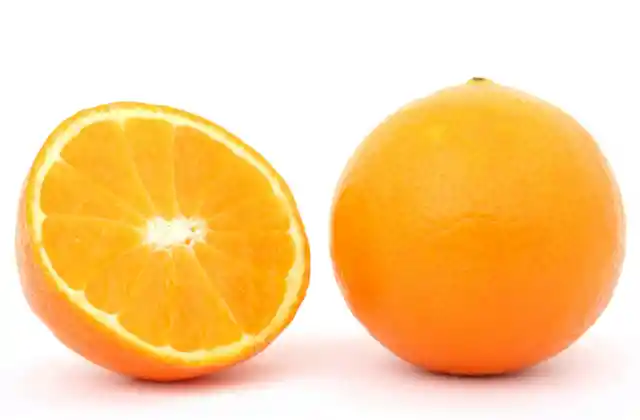
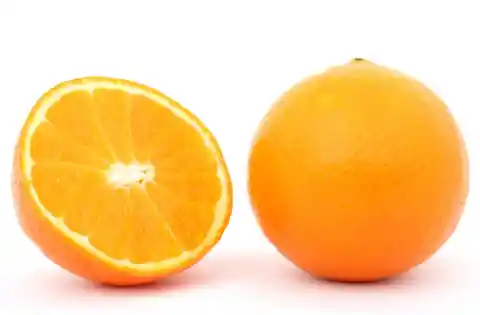
Loaded with fiber, vitamins, vitamin C, and potassium, they help eliminate excess sodium, lower blood pressure, and counteract harmful proteins.
Kale
A leafy green from the cabbage family, kale is incredibly beneficial for your health.
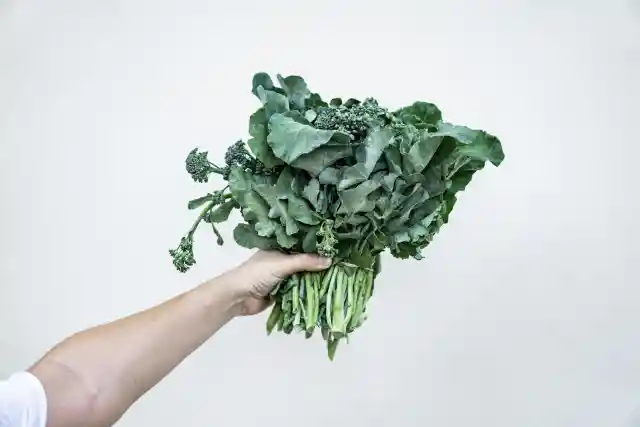
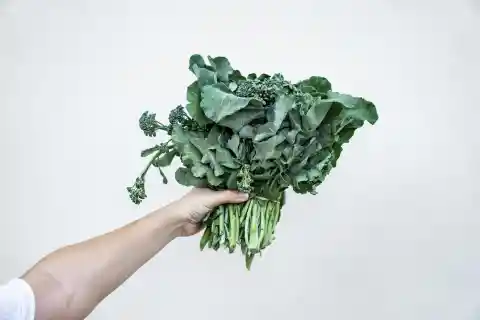
It’s packed with nutrients that support cardiovascular wellness and help combat heart disease. Rich in omega-3 fatty acids, antioxidants, and fiber, kale is also low in fat and calories, making it an excellent addition to any meal.
Garlic
While garlic is famous for warding off vampires, it also offers serious heart benefits.
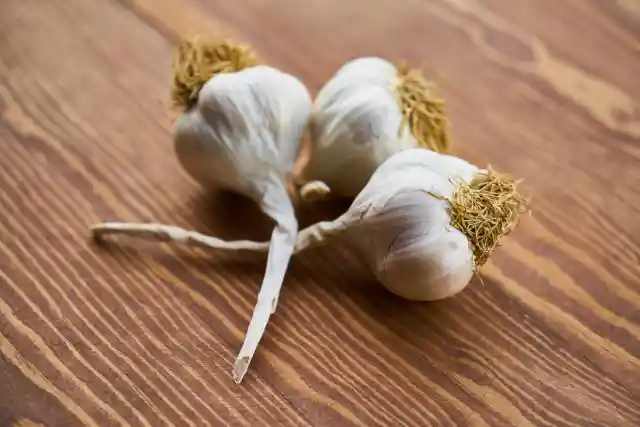
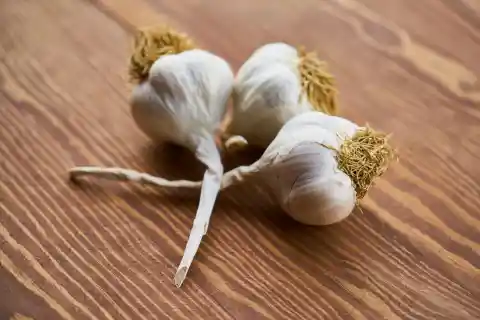
It can reduce arterial plaque, lower blood pressure, and decrease enzymes that constrict blood vessels. If the taste isn’t your favorite, garlic supplements are a good alternative.
Red Wine
No need to give up all indulgences—enjoying red wine in moderation can be heart-healthy.


Research shows it can raise HDL (good) cholesterol and help prevent cholesterol buildup. Packed with antioxidants, red wine also helps keep blood vessels flexible, reducing the risk of harmful blood clots.
Chocolate
It’s okay to enjoy your favorite chocolate now and then. This delicious treat can boost your mood while also lowering your risk of heart disease and stroke. According to a Harvard study, regularly eating raw cocoa improved blood pressure and prevented hypertension.


When consumed in moderation, chocolate helps enhance blood vessel flexibility, supports healthy blood pressure, and reduces the risk of heart-related conditions.
Lentils
Lentils not only enhance your meals but also offer impressive heart health benefits. Rich in potassium, protein, and magnesium, these legumes help reduce the risk of heart disease and strokes.
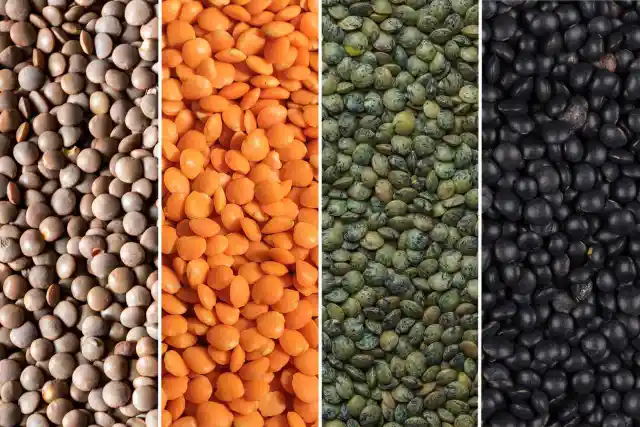
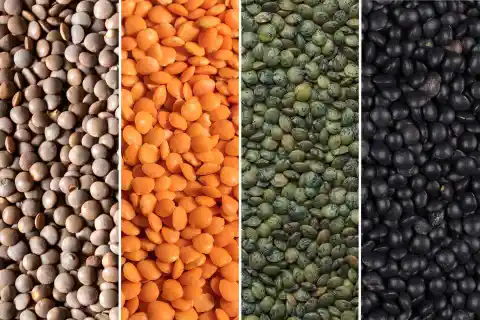
They also contribute to lowering blood pressure, decreasing cholesterol levels, and preventing plaque buildup in the arteries.
Almonds
Almonds are delicious, but they also offer significant health perks. They can enhance brain function, fight heart disease, and lower cholesterol.
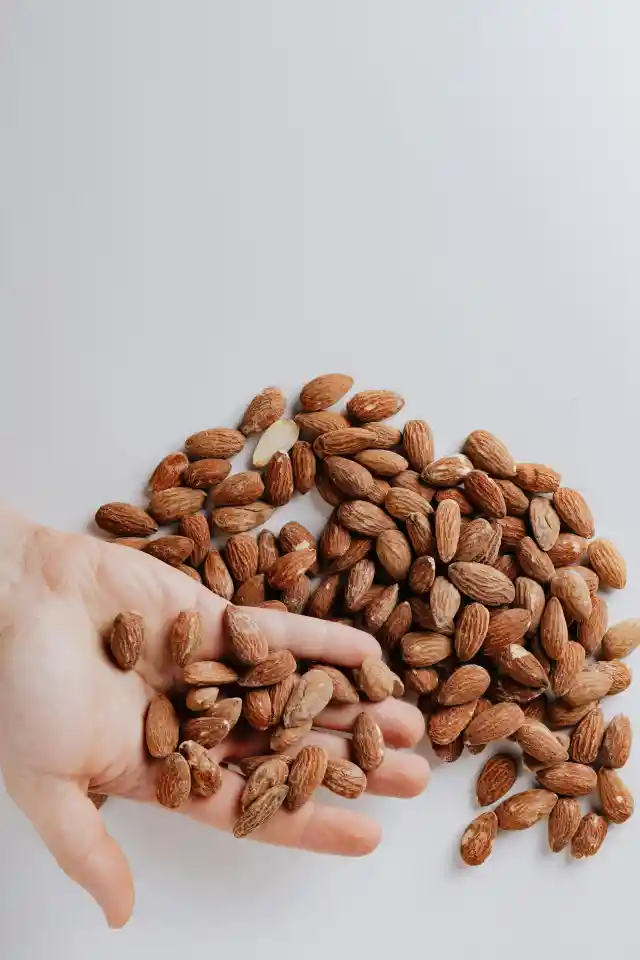
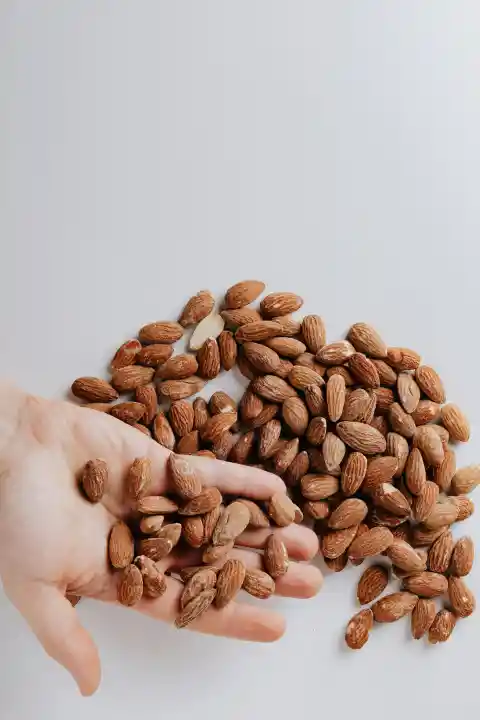
Their high content of plant sterols helps block the absorption of LDL (bad) cholesterol, making them a smart choice for heart health.
Pomegranates
Incorporate pomegranates into your smoothies, salads, or shakes to benefit from their rich antioxidant content. These antioxidants help protect your arteries from plaque oxidation and reduce the risk of heart disease.


Research also suggests pomegranates may help prevent prostate cancer, diabetes, strokes, and Alzheimer’s. Additionally, they support healthy teeth, skin, and joints.
Blueberries
Delicious and packed with antioxidants and essential nutrients, blueberries offer impressive health benefits.


Consuming just three servings a week can help prevent cholesterol buildup, improve blood pressure, and guard against arterial plaque. They may also reduce cancer risk and lower the chances of heart disease.
Beets
Beets are rich in antioxidants and essential minerals, making them a powerhouse for heart health.
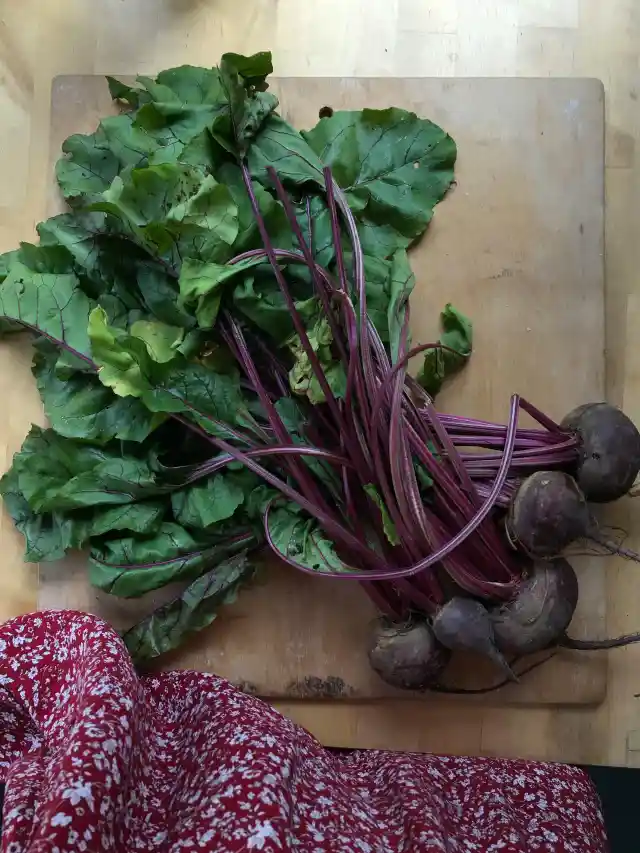
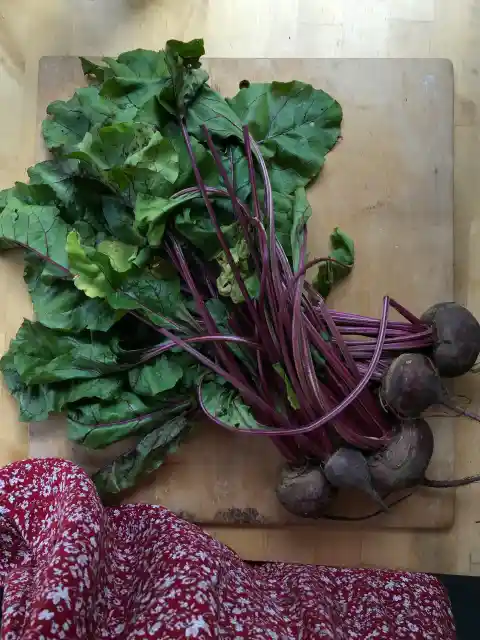
These vibrant root vegetables help lower homocysteine levels, reduce the risk of heart disease, support organ function, and may even aid in cancer prevention.
Salmon
Often called the “chicken of the sea,” salmon is packed with omega-3 fatty acids and essential nutrients that support heart health.


It helps reduce triglyceride levels, relax blood vessels, prevent blood clots, and lower the risk of heart disease.
Turmeric
Turmeric contains curcumin, a powerful compound known to help prevent heart enlargement.


It also supports overall cardiovascular health by reducing the risk of obesity, high blood pressure, and impaired blood vessel function. These benefits make turmeric a valuable ally in lowering the risk of heart disease.
Chia Seeds
Popular as a smoothie topping, chia seeds are more than just a trendy add-on. They’re loaded with antioxidants, protein, fiber, nutrients, and omega-3 fatty acids.
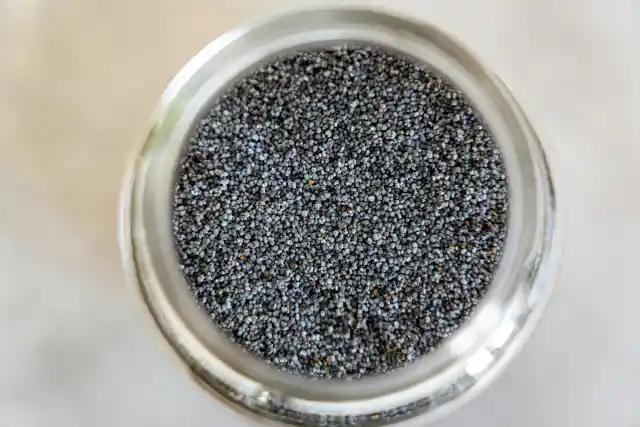
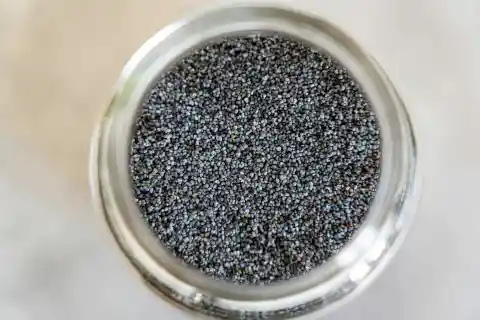
These tiny seeds help reduce cholesterol, support heart health, and lower the risk of various diseases.
Apples
The old saying might hold some truth—apples are packed with vitamins, minerals, and antioxidants that help lower blood pressure and reduce the risk of heart disease.
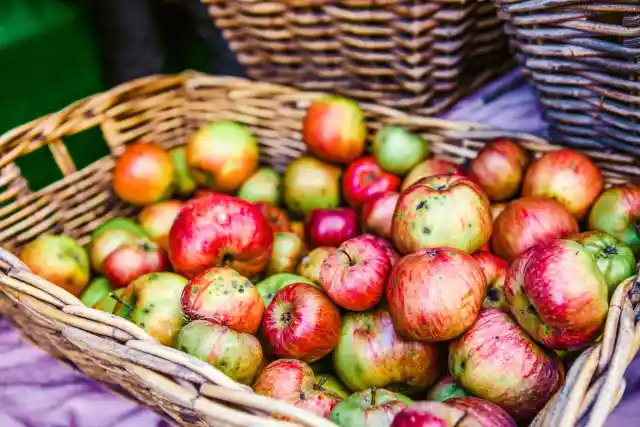
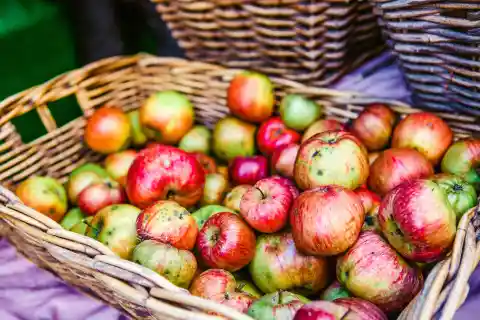
With so many varieties available, you can pick them based on flavor, color, or even specific health benefits.
Avocados
Avocados have gained massive popularity—and for good reason. They're rich in potassium, antioxidants, and heart-healthy monounsaturated fats.


These nutrients help lower cholesterol, boost cardiovascular health, and reduce the risk of heart disease.
Eggplant
Delicious and nutrient-rich, eggplants are packed with vitamins, minerals, antioxidants, flavonoids, and nasunin.


These vibrant veggies support better circulation, help lower cholesterol, prevent blood clots, and reduce the risk of heart disease.
Broccoli
No need to shy away from broccoli—it’s fantastic for your heart. This nutrient-dense veggie helps lower cholesterol and strengthen blood vessels.


Rich in sulforaphane, broccoli also offers anti-inflammatory benefits and may help prevent chronic issues related to blood sugar.
Carrots
Carrots aren't just great for your eyes—they’re also a heart-smart choice. Rich in vitamins and antioxidants, they help fight free radicals and reduce the risk of heart disease.


Carrots also support bone health and may lower the risk of certain cancers.
Chicken
We all love how versatile chicken is—and it's a heart-healthy option too.


As a lean protein, it contains less saturated fat and cholesterol compared to red meat, making it a popular choice among health-conscious eaters.
Kiwi
Don’t let the fuzzy exterior fool you—inside is a vitamin-packed fruit.
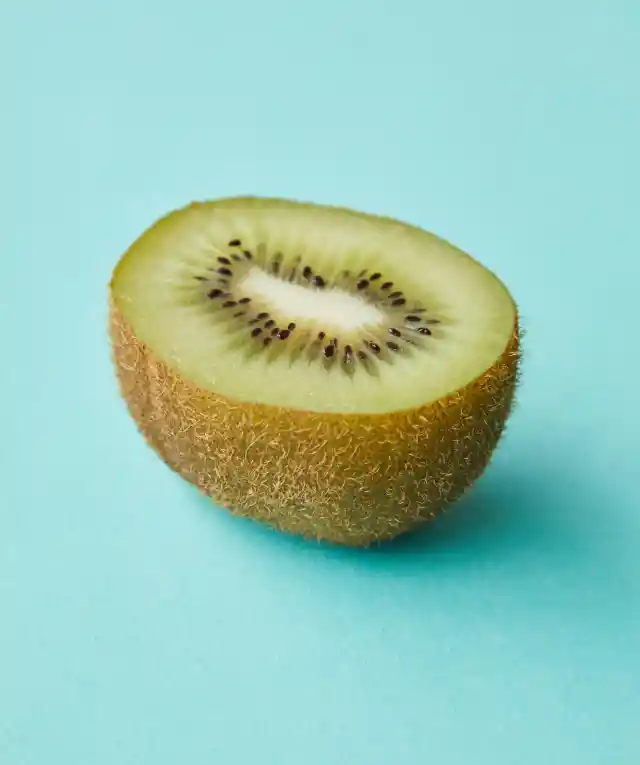
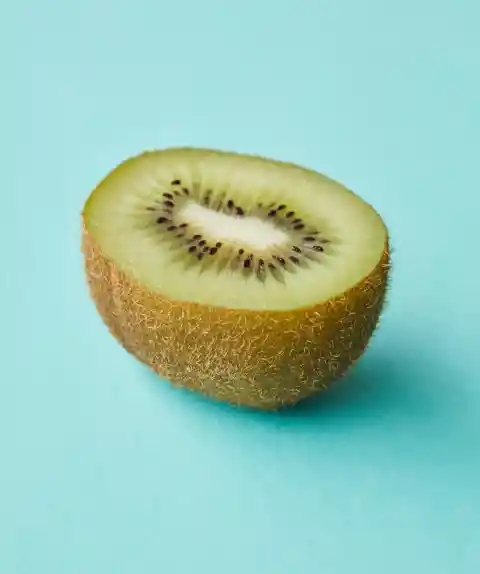
Kiwi is rich in potassium, polyphenols, copper, and magnesium, all of which help prevent blood clots, support heart health, and protect your cardiovascular system.
Lentils
Legumes like lentils are loaded with vitamins and minerals—surprisingly, they even have more potassium than bananas!


Providing both protein and energy, lentils are a versatile addition to many meals. Along with grapefruit, they’re also a key part of the DASH diet.
Mackerel
Looking for a fish option beyond salmon and tuna? Mackerel is a delicious choice that pairs well with salads and various dishes.


It’s rich in antioxidants and omega-3 fatty acids, making it effective at reducing the risk of cancer and heart disease.
Cashews
Cashews are a favorite snack, and the good news is they’re packed with monounsaturated fats that lower LDL (bad) cholesterol while boosting HDL (good) cholesterol.
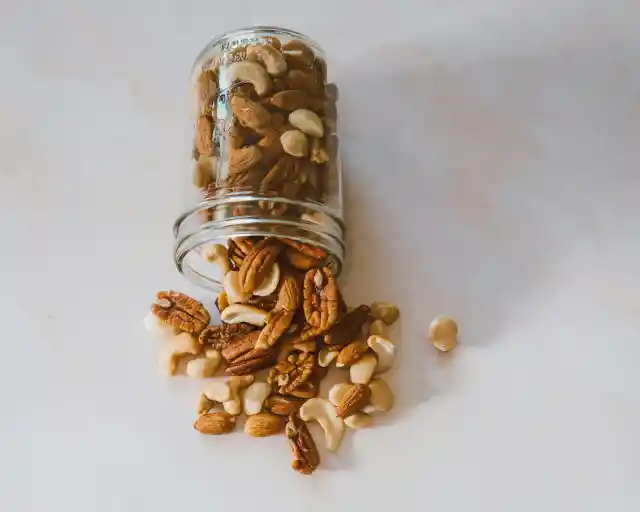
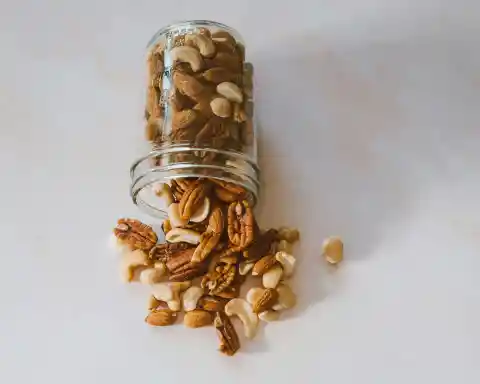
Their antioxidants also play a role in protecting cells from damage.
Oatmeal
Starting your day with oatmeal is both delicious and nutritious. This versatile dish is rich in fiber and essential minerals, and its low glycemic index makes it ideal for weight management and diabetes control.


Plus, oatmeal helps clear arteries, supporting a healthy heart.
Beans
Beans as a whole deserve special recognition. These tiny powerhouses are low in fat, packed with protein, and high in fiber.
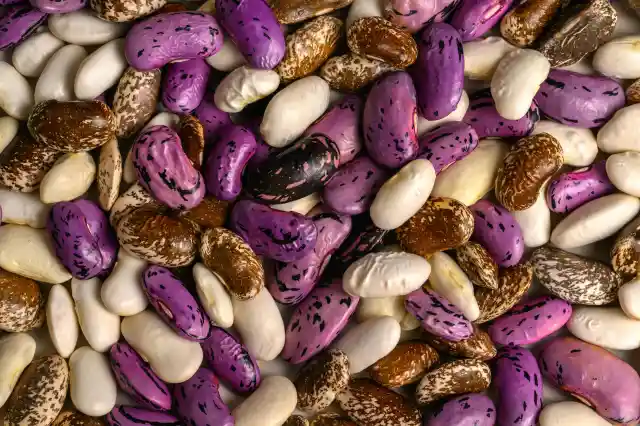
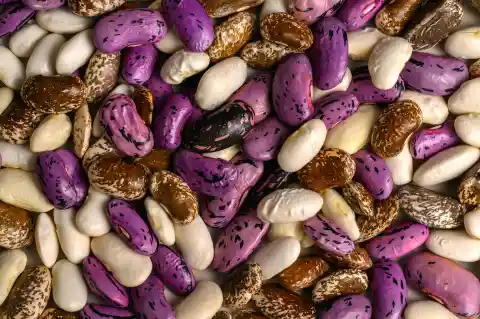
They also contain numerous phytochemicals that help protect against heart disease.
Pears
Similar to apples, pears are loaded with antioxidants, nutrients, and fiber.


These qualities help lower the risk of heart disease while also reducing blood pressure and cholesterol levels.
Asparagus
Not only is asparagus tasty, but it’s also packed with fiber, vitamins, minerals, and other nutrients.
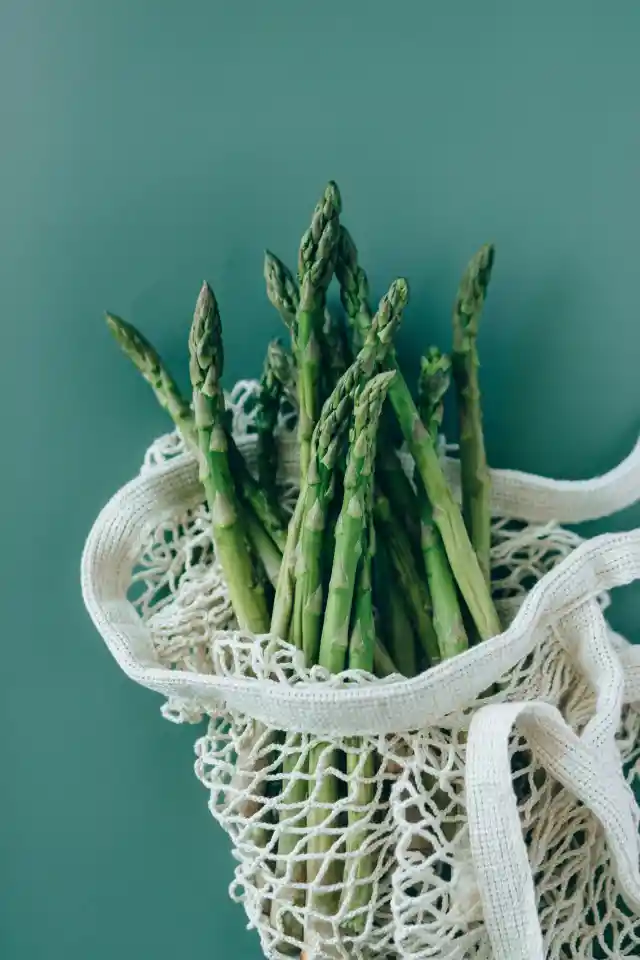

It supports digestive health, helps regulate insulin levels, guards against several diseases, and lowers the risk of high blood pressure.
Quinoa
Quinoa has gained popularity as a highly nutritious grain—and for good reason. It contains almost twice the fiber found in many other grains and is packed with minerals, antioxidants, and essential amino acids.
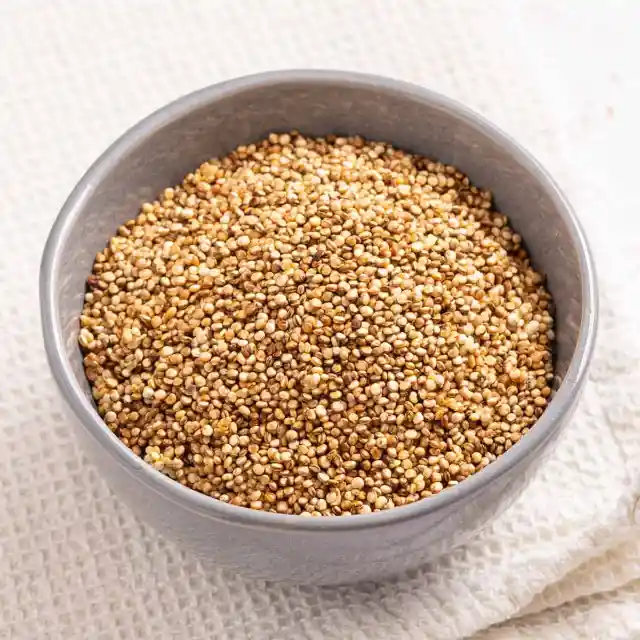
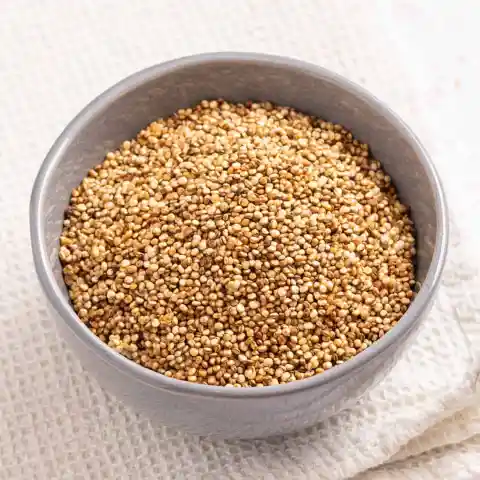
Quinoa supports weight loss, helps regulate blood sugar and cholesterol, and promotes heart health.
Spinach
The makers of Popeye were onto something! This leafy green is an excellent source of vitamin K, which plays a key role in preventing blood clots and strengthening bones.
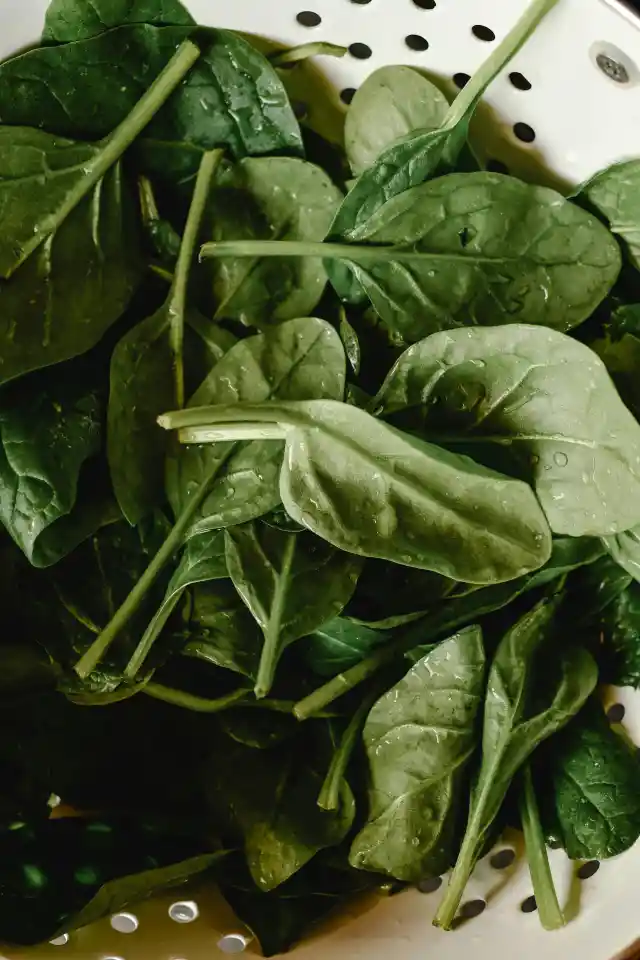
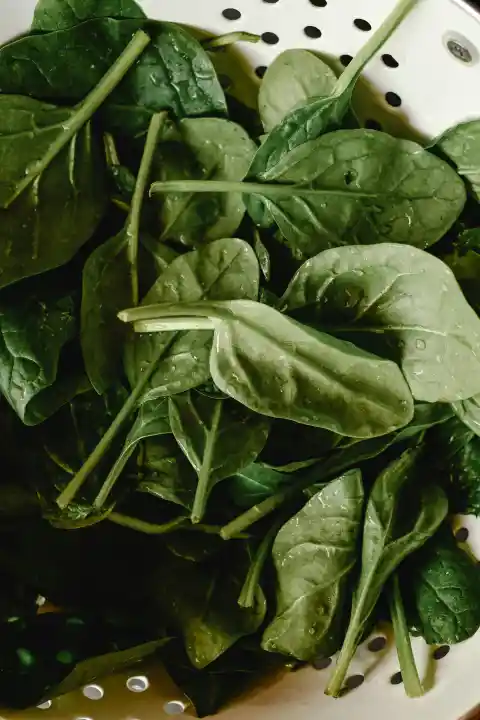
Spinach is also rich in potassium, fiber, folate, and lutein—all important for supporting heart health.
Strawberries
Strawberries are a delicious addition to nearly any meal, satisfying both your sweet cravings and health goals.
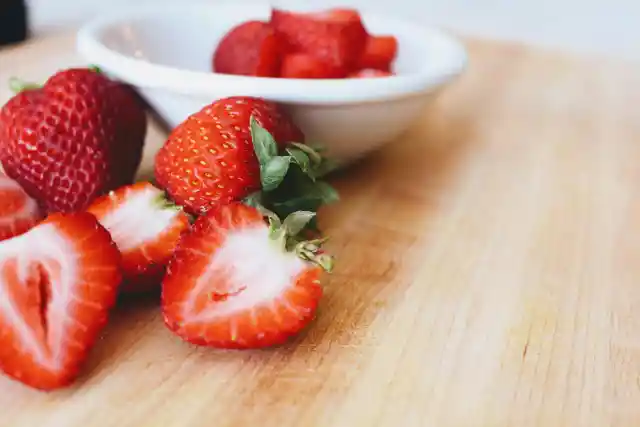

These red berries are packed with minerals, nutrients, and vitamin C, while being low in calories and helpful for fat burning. Research also shows they help relax arteries and prevent plaque buildup in the heart.
Sweet Potato
Sweet potatoes are quickly becoming a kitchen favorite. This superfood is rich in potassium, which aids in lowering blood pressure by maintaining fluid balance in the body.


Additionally, sweet potatoes play a role in regulating your heartbeat.
Walnuts
Walnuts are a favorite snack for many, and the good news is they’re packed with the omega-3 fatty acid alpha-linolenic acid (ALA).


This nutrient helps lower blood pressure, improve cholesterol levels, and promote overall heart health.
Watermelon
Arguably the ultimate summer fruit, watermelon is made up of about 96% water, making it perfect for staying hydrated.


It’s also rich in potassium, magnesium, and vitamins A, B6, and C. Eating it regularly can help lower both blood pressure and cholesterol.
Bananas
Perfect for smoothies and breakfast bowls, bananas offer more than just great taste. They're rich in fiber, potassium, and protein, helping with muscle contraction and nerve function.


Despite some diet myths, bananas are actually low in energy density and contain resistant starch and fiber—both helpful for weight loss. Plus, they support heart health by lowering blood pressure and keeping your heartbeat steady.
Olive Oil
Olive oil is more than just a tasty salad topper—it’s also incredibly heart-healthy.


A staple of the Mediterranean diet, extra virgin olive oil is known for reducing harmful LDL cholesterol, helping prevent blood clots, and supporting blood sugar control.
Soy
You’ve probably noticed soy products taking up more space on store shelves—and for good reason.
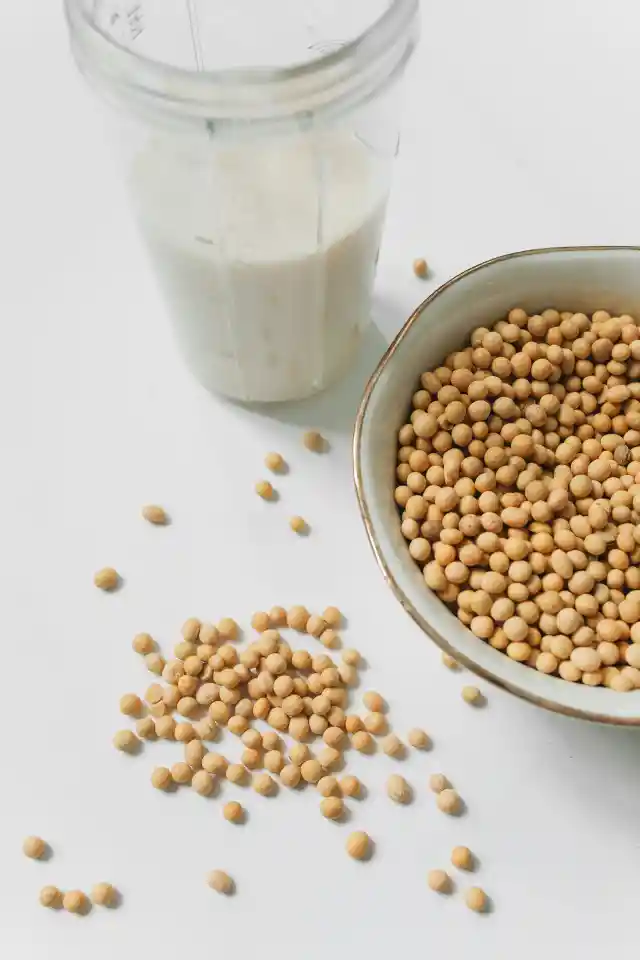
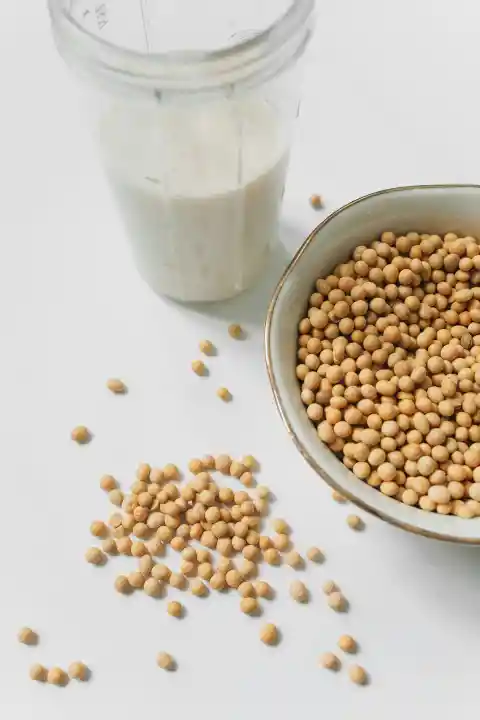
Beyond being a solid meat alternative, soy helps lower bad cholesterol and is packed with fiber, omega-3 fatty acids, and protein, all of which contribute to better heart health.
Apple Cider Vinegar
Yes, its strong smell might be off-putting, but apple cider vinegar is known for its impressive health benefits—just ask Beyoncé, a vocal fan of its healing powers.
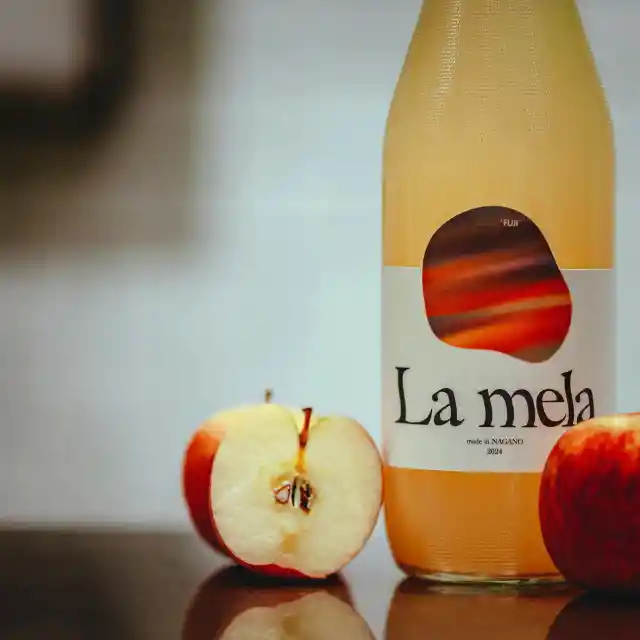
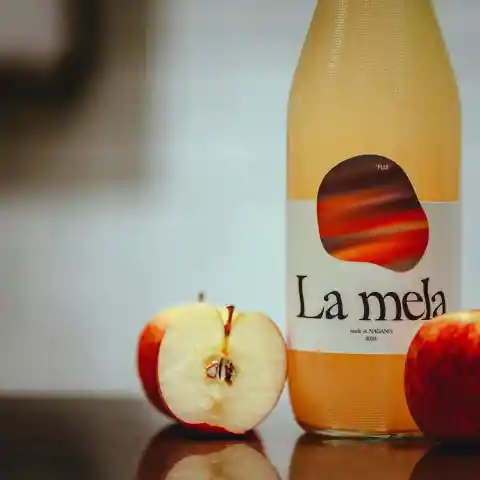
When diluted with water and taken before meals, it may aid in weight loss, help lower blood pressure, and reduce the risk of heart disease.
Black Beans
You’ve probably heard the rhyme—and it’s true! Black beans are loaded with heart-healthy nutrients like protein, fiber, potassium, vitamin B6, folate, and phytonutrients.
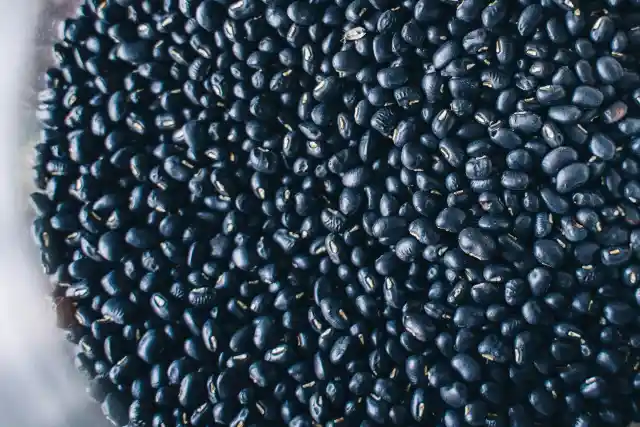
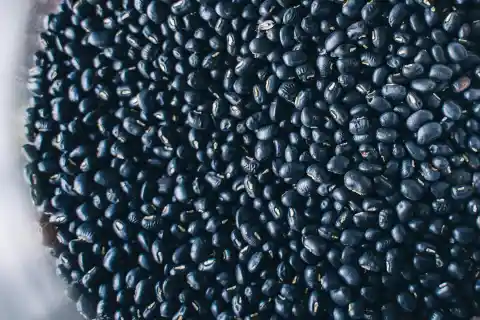
All of these work together to lower cholesterol and reduce the risk of heart disease.
Reduced-Fat Yogurt
Research shows that reduced-fat yogurt is a great addition to a balanced diet. Not only can it help regulate your eating habits, but it’s also been linked to protection against certain cancers.
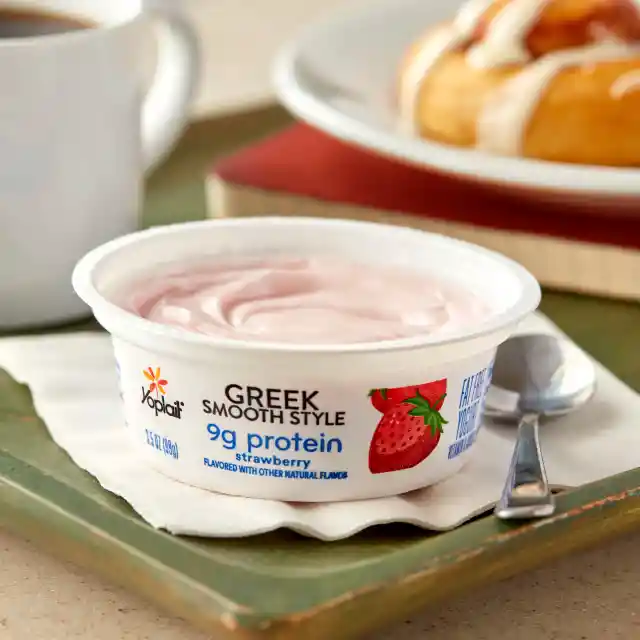
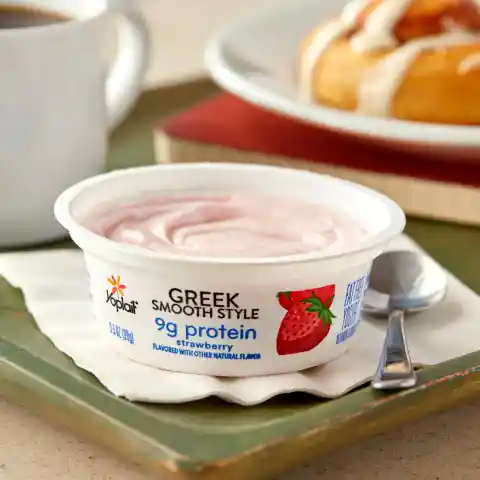
Plus, it supports a healthy blood pressure—making it a calm and nutritious choice for heart health.
Cabbage
Ultimately, our health is in our own hands—and cabbage can be a powerful ally in protecting it.


Rich in vitamin C, antioxidants, and a variety of essential minerals and vitamins, cabbage supports overall wellness. As an added bonus, it also contributes to maintaining good vision.
Brown Rice
Rice has been a dietary cornerstone across cultures for centuries, but brown rice often doesn’t get the attention it deserves.


Packed with essential vitamins and minerals, this whole grain not only keeps you full but also helps protect against heart disease and diabetes.
Coconut Oil
Coconut oil is another often underrated option when it comes to heart health. It supports good cholesterol levels and can benefit your cardiovascular system.


That said, moderation is key—too much coconut oil may have adverse effects, so be sure to enjoy it in balance.
Cauliflower
You might have struggled with cauliflower as a kid, but now it’s time to appreciate this white relative of broccoli.


Cauliflower offers plenty of fiber while being low in carbohydrates. It strengthens your bones, aids in detoxification, and as a bonus—it’s really tasty!
Dragon Fruit
Before you get excited imagining fire-breathing creatures, dragon fruit doesn’t come from mythical beasts—but it does deliver an impressive boost of nutrients.


This vibrant fruit is rich in phytonutrients, iron, calcium, protein, antioxidants, carotene, polyunsaturated fatty acids, and vitamins C and B. Truly a powerhouse worth trying!
Pistachio
First things first—it’s green, just so we’re clear! Pistachios are incredibly tasty and packed with nutrients and antioxidants, yet they’re low in calories—a total win.
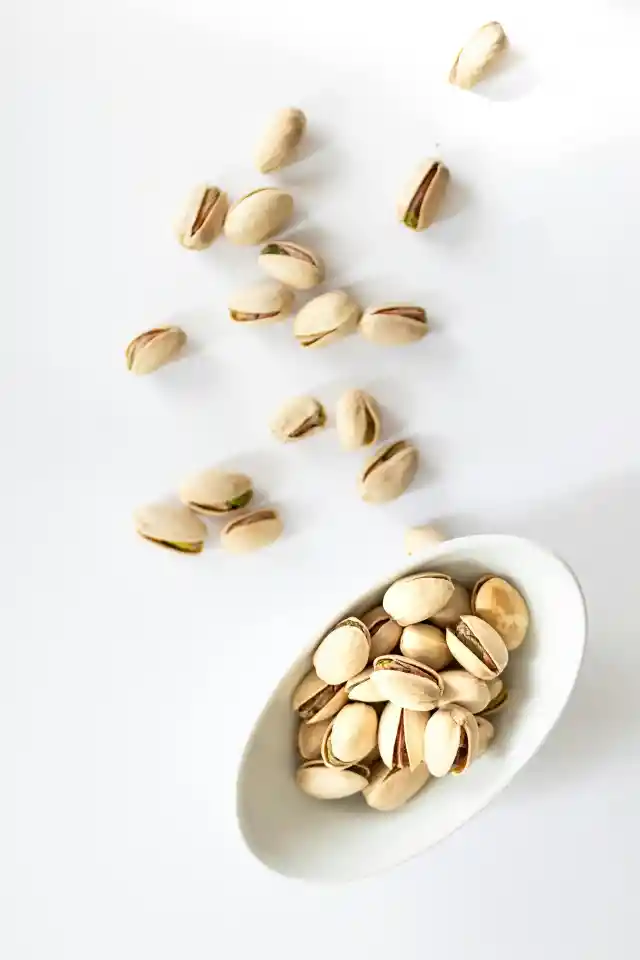
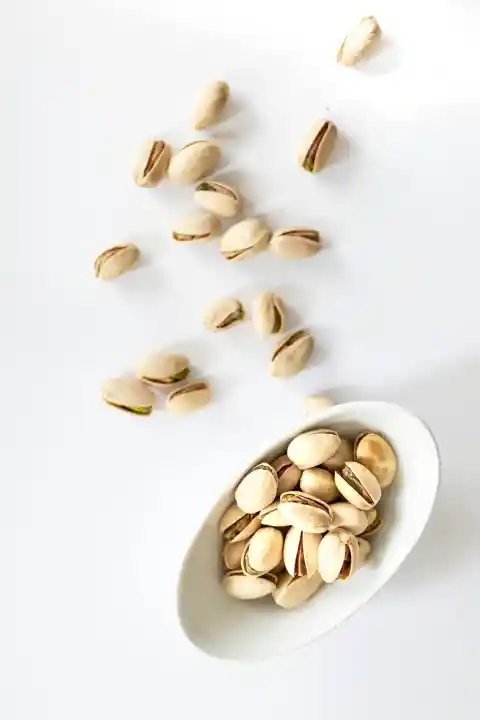
While they don’t directly affect cholesterol, they’re fantastic for supporting heart and gut health. Honestly, it’s a wonder I haven’t been snacking on these all along!
Pumpkins
Believe it or not, pumpkins aren’t just for carving spooky Halloween decorations. These vibrant orange giants are nutritional powerhouses, packed with pro-vitamin beta-carotene, fiber, potassium, vitamin C, and phytoestrogens.


They also support weight loss, help regulate blood pressure, and combat harmful cholesterol.
Tomato Sauce
Just to be clear—we’re not referring to sugary ketchup here. We mean the pure, natural tomato sauce often used as a base for pizza or pasta dishes.


Studies show that this kind of tomato sauce can boost heart health and even help keep your skin looking youthful. How awesome is that?
Brussel Sprouts
Thanks to the internet, finding tasty brussel sprout recipes is easier than ever.
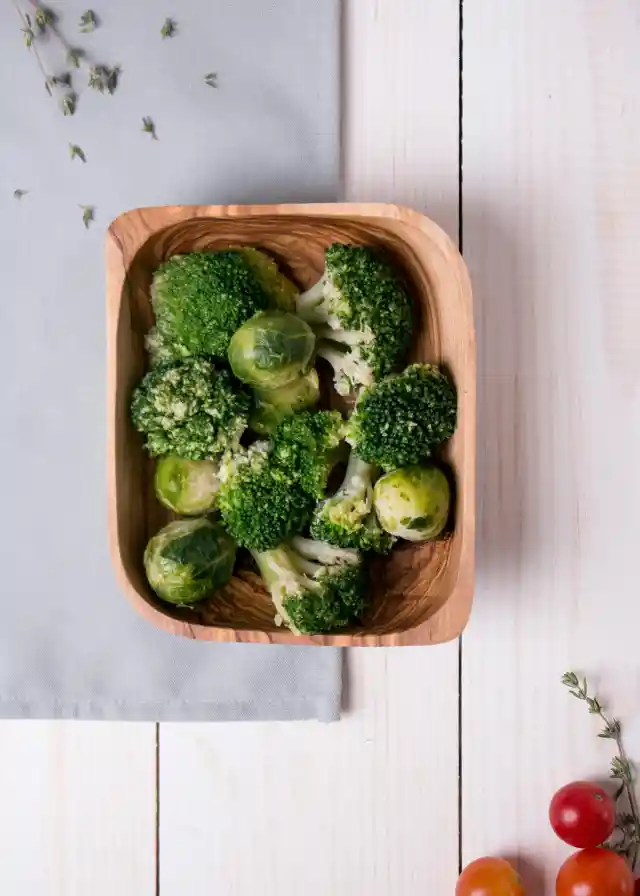
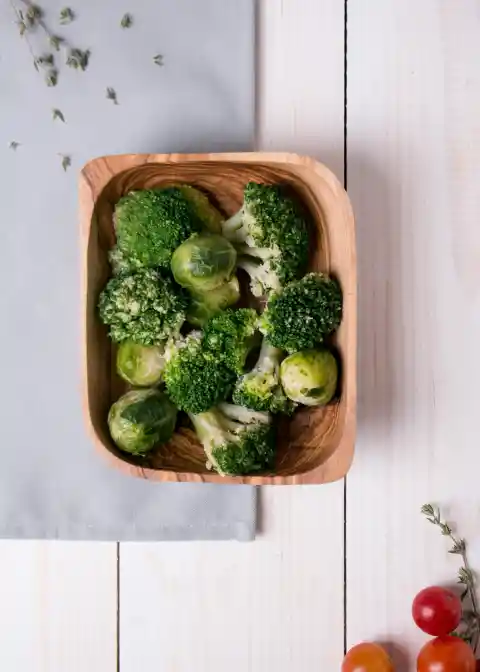
They’re not just delicious—they’re loaded with glucosinolates, protein, potassium, and iron. Plus, they help your body eliminate toxins. Seriously, why don’t I eat more of these?!
Olives
There’s a solid reason olives often show up as bar snacks—they’re tasty!
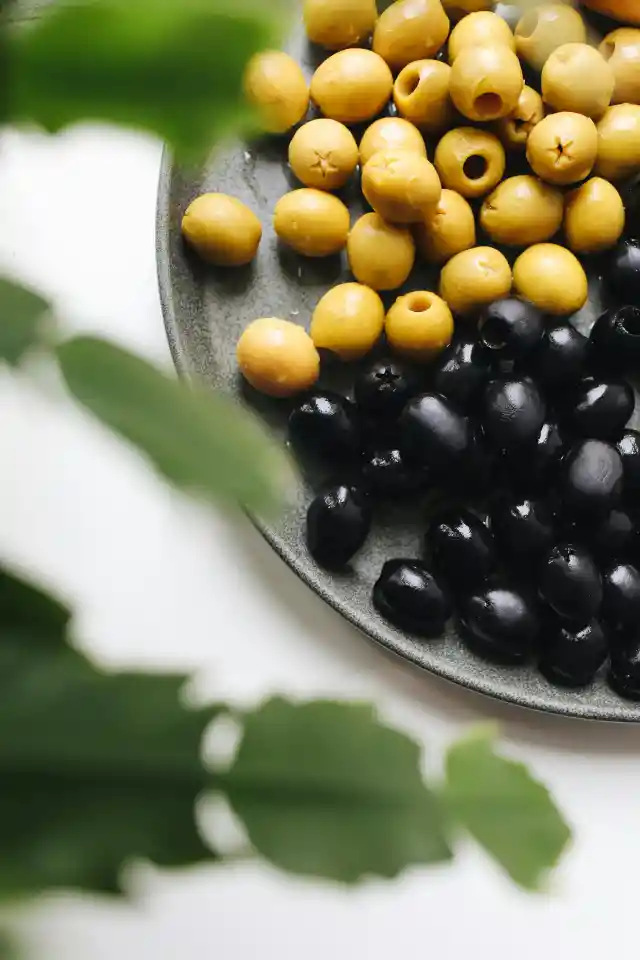
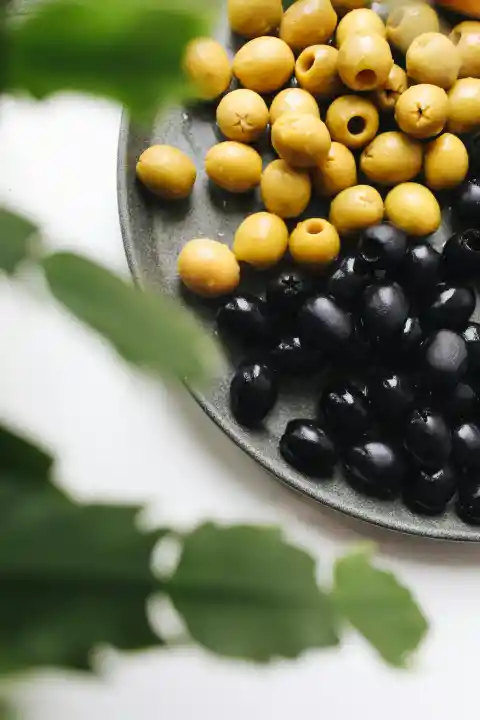
But beyond flavor, they’re also packed with health benefits that can help balance out some of those less healthy drinks. Olives are rich in monounsaturated fats, nutrients, and antioxidants, and they might even support weight loss!
Cinnamon
Let’s talk about cinnamon—not its synonyms, but some of its impressive qualities. Think of it as calcium-rich, packed with fiber, and great at lowering glucose and cholesterol levels. Pretty impressive, right?


Beyond adding that warm, festive flavor to dishes, cinnamon is incredibly healthy and may even boost brain function.
Edamame
Why is it that edamame makes a perfect snack any time of day—morning, lunch, dinner, or even late at night?
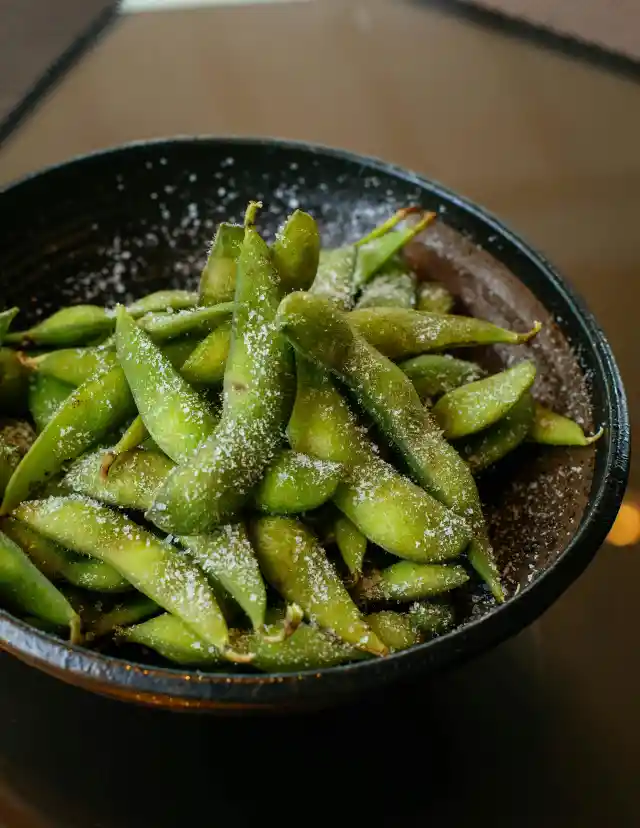
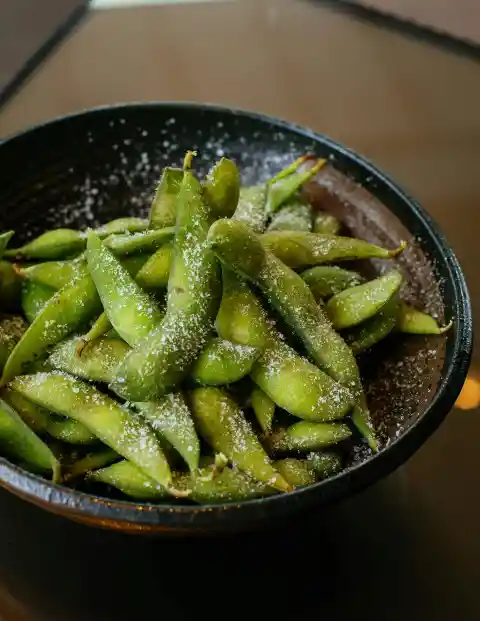
Maybe it’s just me, but here’s why it’s so good: edamame is a soy-based protein that helps combat heart disease and lowers cholesterol levels in the body.
Collard Greens
Collard greens represent an entire family of nutrient-rich vegetables—including kale, bok choy, brussels sprouts, broccoli, rutabaga, and cabbage.


Each of these leafy greens is packed with vitamins and minerals that work together to fight off heart disease, obesity, and diabetes.
Water
Is water healthy? Absolutely—and more than you might think. While it may not be as flashy as a latte or smoothie, water remains the most vital drink for our health.


Staying well-hydrated supports every system in the body, from digestion to circulation. It may be simple, but drinking enough water daily is one of the easiest and most effective ways to maintain overall wellness.
Tuna
Often referred to as the "chicken of the sea," tuna earns its nickname thanks to its mild flavor and versatility. While it's important to be mindful of mercury levels, tuna is a powerhouse of nutrition.
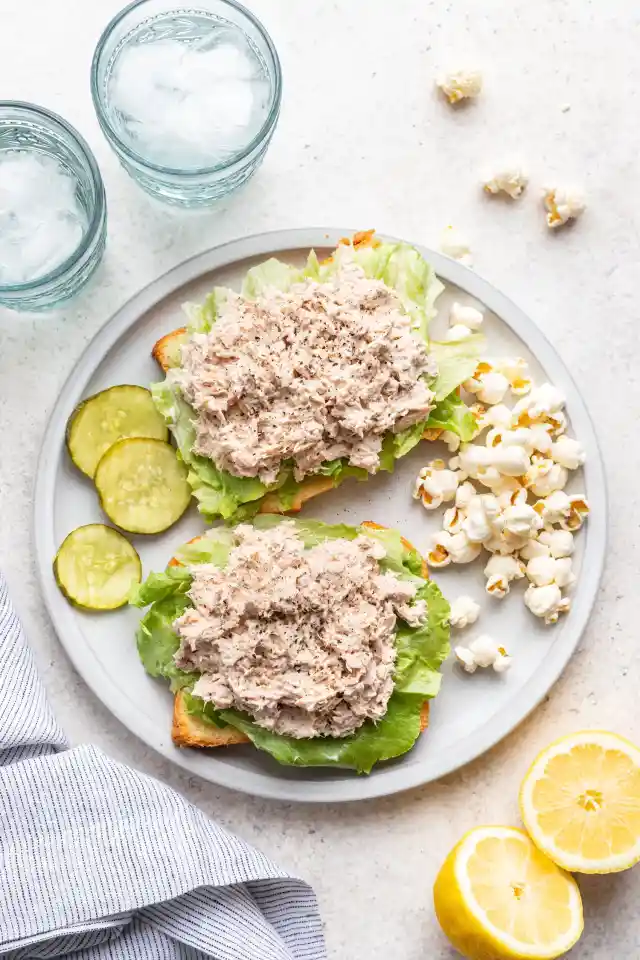
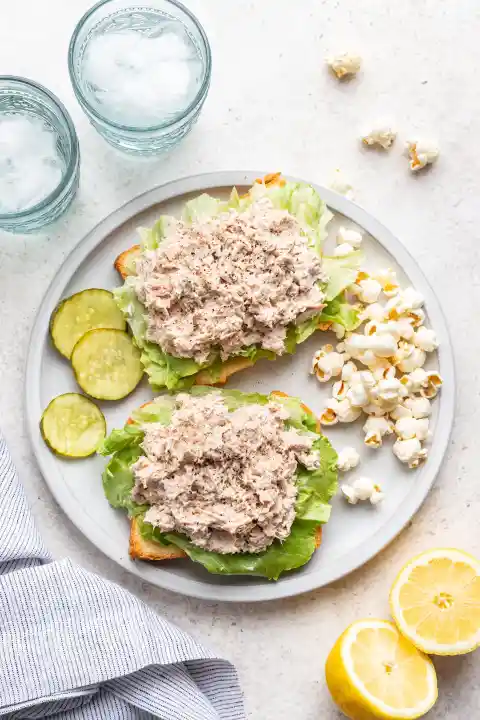
It’s rich in omega-3 fatty acids and essential amino acids that support heart health, reduce inflammation, and boost overall wellness. Enjoy it in moderation as a delicious and heart-friendly protein option.
Raspberries
You no longer have to journey to Northern Europe to enjoy the benefits of raspberries—though they can be a bit pricey. These vibrant berries are rich in vitamin C and manganese, while being low in fat.
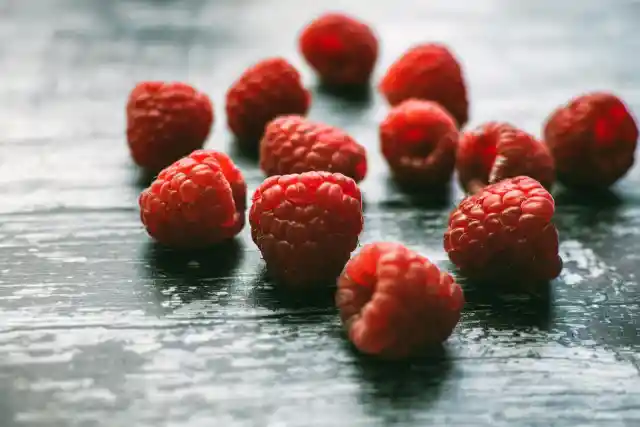

Even more impressive, they’re packed with polyphenols, powerful antioxidants known to protect the heart and reduce the risk of cardiovascular disease.
Brazil Nuts
Just a small handful of Brazil nuts is enough to deliver a powerful nutritional boost. These nutrient-dense snacks are rich in antioxidants, healthy fats, and selenium—a mineral essential for heart health and immune function.
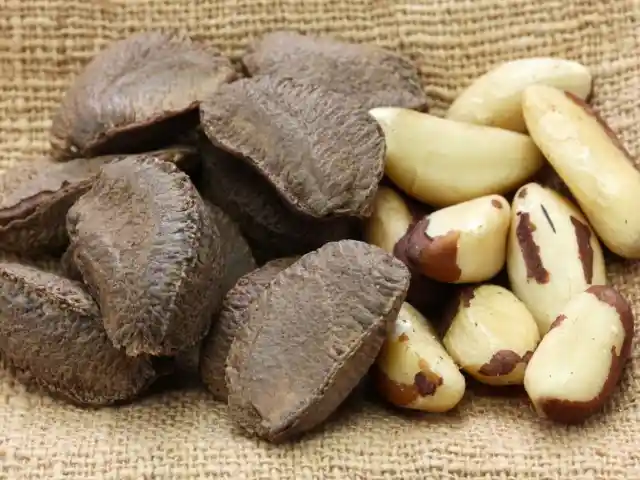
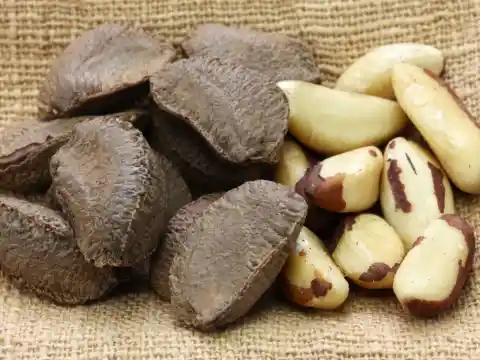
Not only are they satisfying and delicious, but they also help combat inflammation and support cardiovascular wellness.
Fatty Fish
Don't let the word "fatty" fool you—these fish are rich in heart-healthy fats! Varieties such as herring, sardines, trout, mackerel, and salmon are excellent sources of omega-3 fatty acids, which help reduce inflammation, lower triglyceride levels, and improve overall cardiovascular health.


Adding them to your diet a couple of times a week can significantly boost your heart's well-being.
Tomatoes
Ever notice how tomatoes resemble little hearts? It’s almost as if nature is giving us a hint. Packed with vitamin C, vitamin A, potassium, fiber, and the powerful antioxidant lycopene, tomatoes are excellent for supporting heart health.
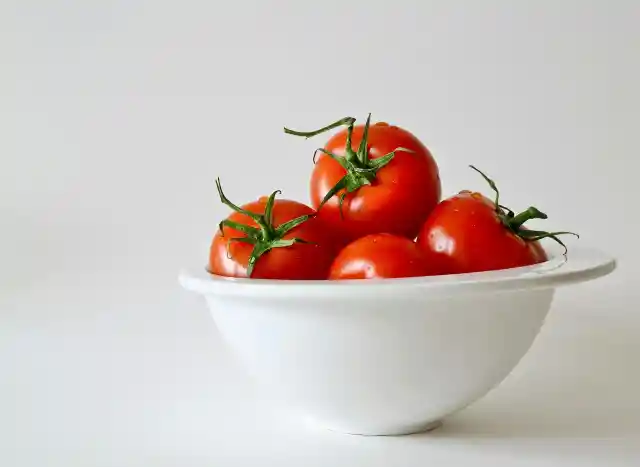
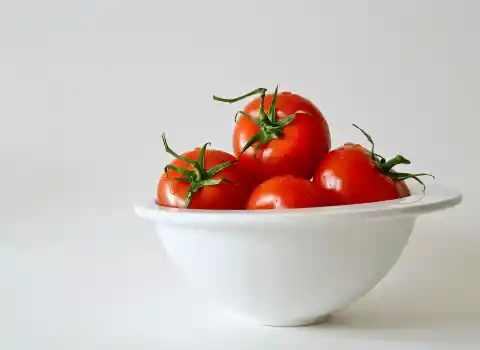
Lycopene, in particular, has been linked to reduced cholesterol levels and lower risk of heart disease, making tomatoes a delicious and heart-smart addition to your meals.
Acai Berries
Acai berries might just be the trendiest fruit around, and for good reason. These deep purple berries are not only visually stunning—especially in smoothie bowls—but also rich in antioxidants, fiber, and heart-healthy nutrients.

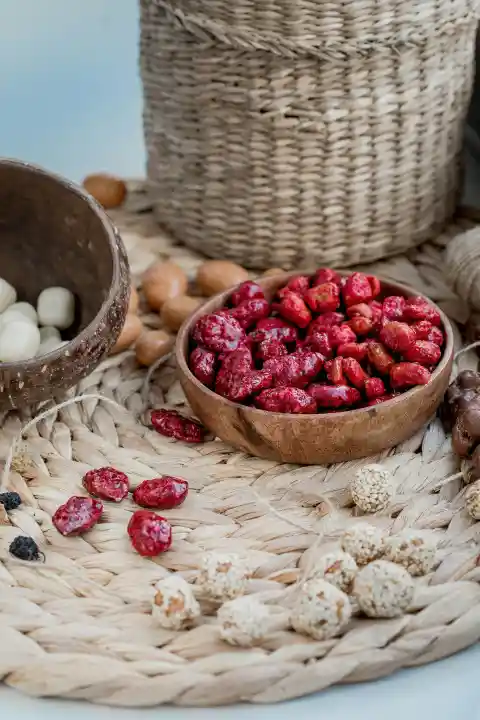
They’re known for their ability to combat inflammation and reduce the risk of chronic illnesses like heart disease, diabetes, and even certain cancers. Stylish and powerful, acai berries are a superfood with serious health benefits.
Sardines
Looking for a heart-smart seafood option? Sardines are a fantastic pick! Packed with omega-3 fatty acids, these little fish help raise HDL (good) cholesterol, reduce inflammation, and lower triglyceride levels.


In short, sardines offer big heart benefits in a small, tasty package.
Goji Berries
Goji berries are nutrient powerhouses loaded with iron, vitamin C, and potent antioxidants.
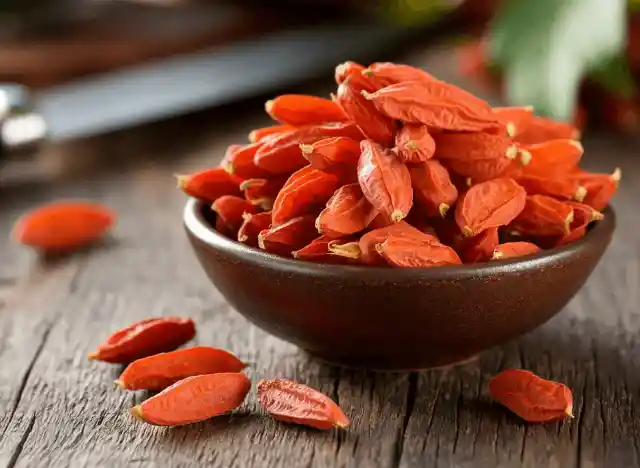
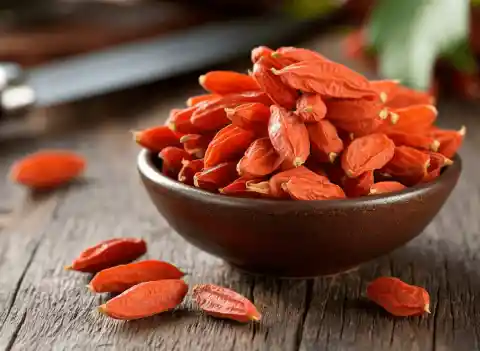
These tiny red berries support overall wellness by boosting your immune system, fighting oxidative stress, and promoting heart health. A small serving goes a long way toward keeping your body and heart in top condition!
Seaweed
Seaweed is a nutritional powerhouse, rich in omega-3 fatty acids, zinc, magnesium, iodine, iron, and potassium.


This impressive mix of nutrients helps support cardiovascular health by regulating blood pressure, improving circulation, and reducing the risk of heart attack and stroke.
Black Tea
Beyond its comforting warmth on a chilly day, black tea is brimming with antioxidants that benefit your heart.


Regularly sipping this brew can help lower both blood pressure and LDL (bad) cholesterol levels.
Peanut Butter
If you’re a peanut butter lover, here’s some great news—it's actually a nutritious choice! Packed with fiber, protein, potassium, and heart-healthy monounsaturated fats, peanut butter supports healthy blood pressure.


Just keep an eye on portion sizes since it’s also calorie-dense.
Potatoes
While potatoes are known for their high carbohydrate content, they also come with a variety of health benefits. They’re rich in fiber, potassium, iron, zinc, and several essential vitamins.
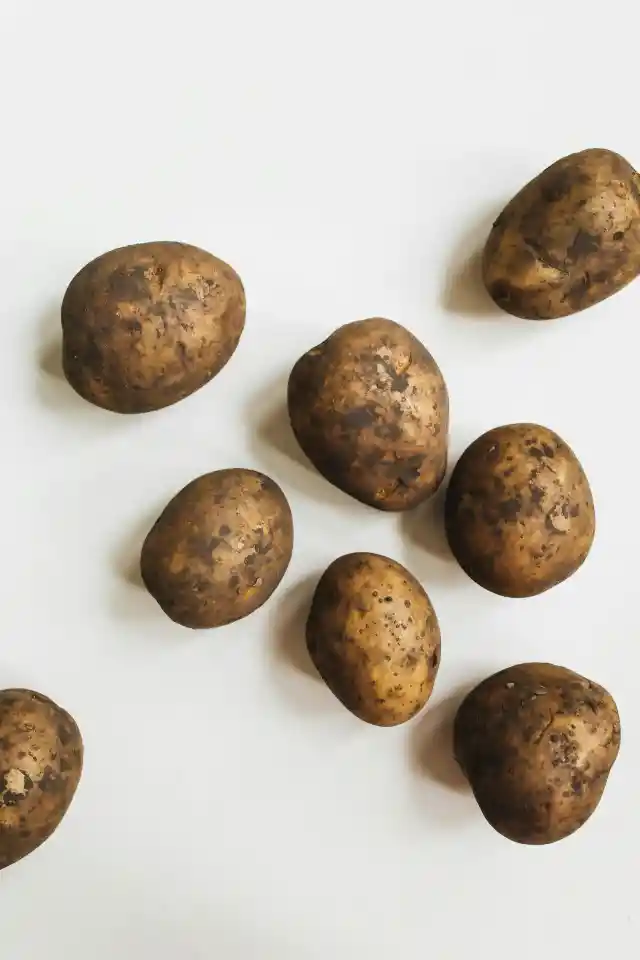

Together, these nutrients help support healthy body functions and contribute to better cholesterol levels.
Barley
Often overlooked, barley is a nutrient-packed grain that provides vitamin B6, fiber, and potassium.
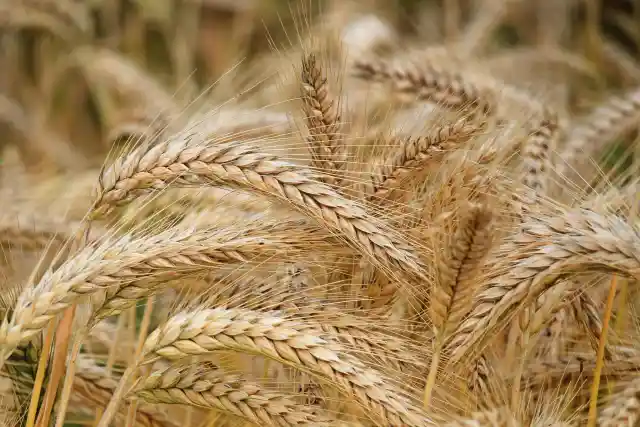

Its high fiber content helps lower cholesterol levels and supports heart health. Just a heads-up—if you’re sensitive to gluten, you’ll want to steer clear of this one.
Radish
If you want to support a healthy digestive system, radishes are a great choice since they’re packed with fiber.
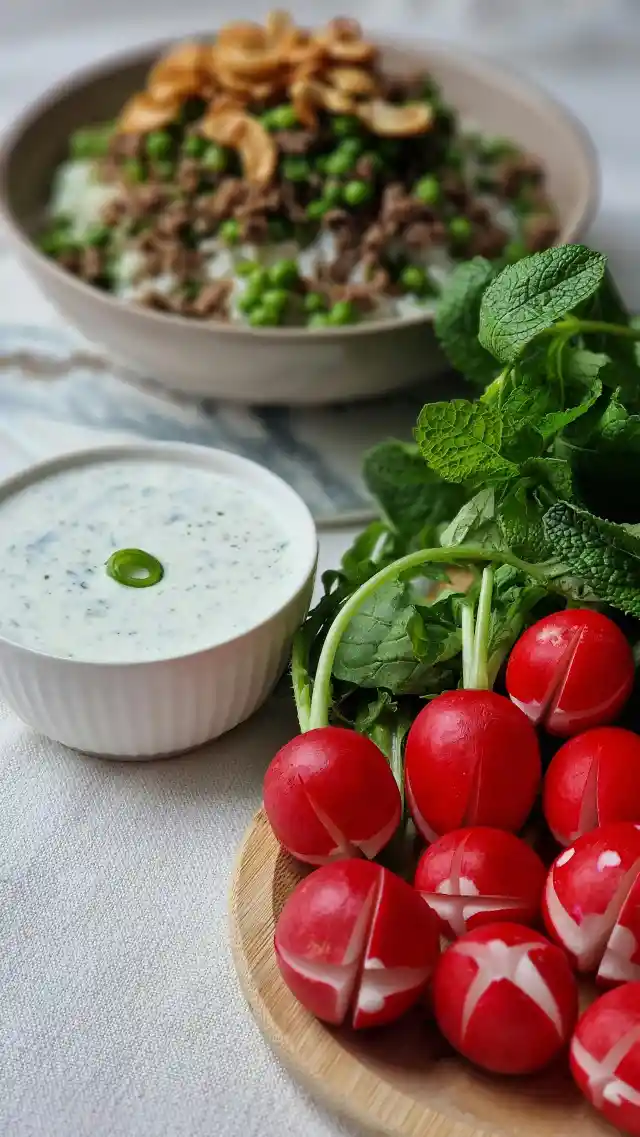
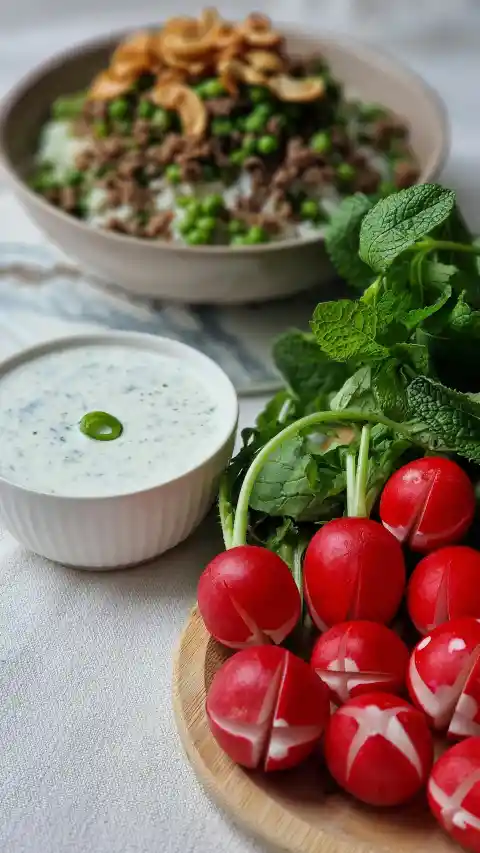
Plus, they’re rich in vitamin C and potassium, making them helpful for managing blood pressure levels.
Green Peas
Green peas might not always get the spotlight, but they’re definitely nutritional rockstars.
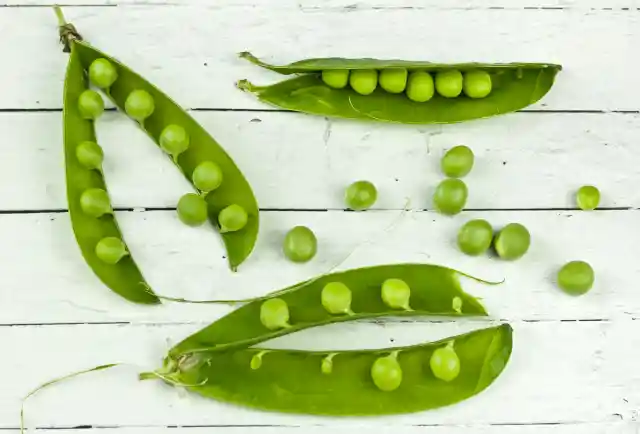
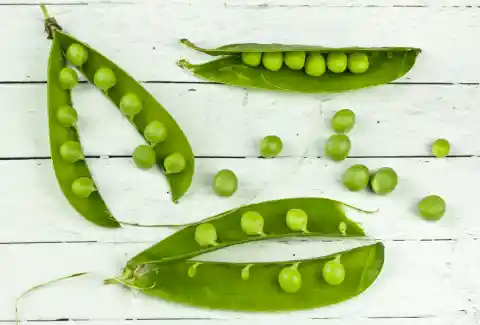
Low in calories yet packed with fiber and protein, they also provide iron along with vitamins A, K, and C. These nutrients work together to support both your immune system and heart health.
Almond Butter
Almond butter is gaining popularity fast—and for good reason.
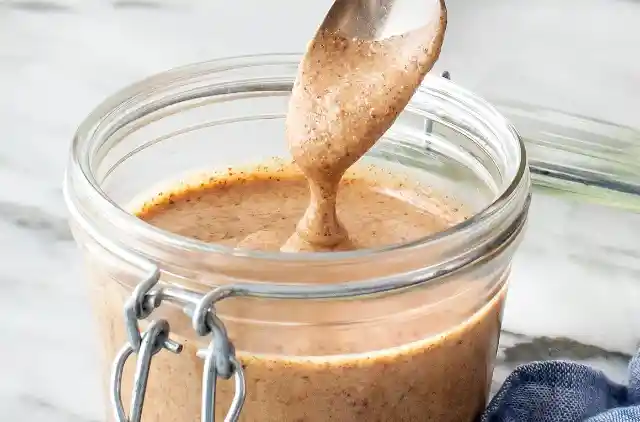
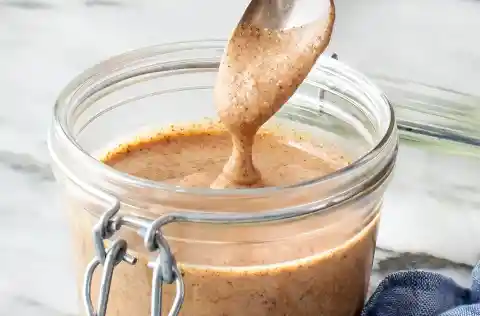
Similar to peanut butter, it’s rich in monounsaturated fats and packed with nutrients that promote heart health.
Eggs
If you’re concerned about the cholesterol in eggs, don’t worry—while they do raise HDL (the good cholesterol), they’re nothing to stress over.


Eggs are also a great source of protein, vitamins, and other nutrients. We definitely recommend including them in your regular diet.
Blackberries
Blackberries are incredibly beneficial, packed full of essential nutrients! If you’re a fruit lover, adding blackberries to your diet is a smart choice.
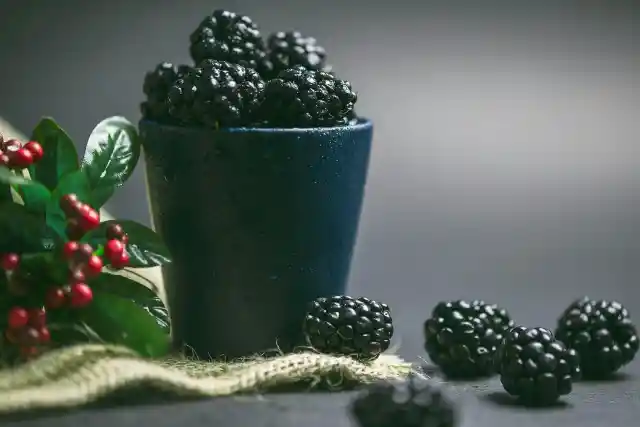

They help protect your heart, support cardiovascular health, and help maintain healthy blood pressure levels.
Spirulina
Spirulina has gained a lot of popularity lately thanks to its impressive health benefits.
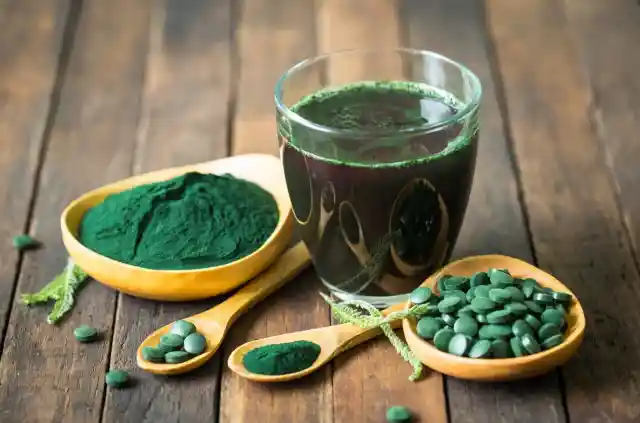
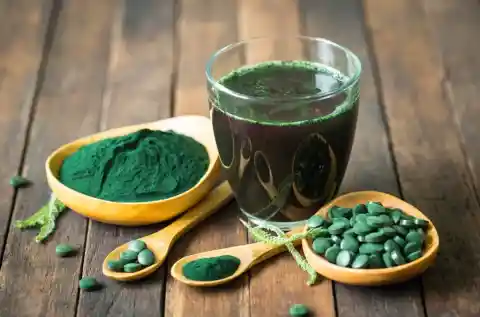
Rich in nutrients, it helps lower blood pressure and reduce LDL cholesterol, making it an excellent choice for boosting your overall well-being.
Cucumber
Cucumbers are made up of more than 95% water, which makes them a low-calorie, hydrating snack. Despite their high water content, they’re still loaded with beneficial nutrients like fiber, protein, magnesium, potassium, and vitamins C and K.
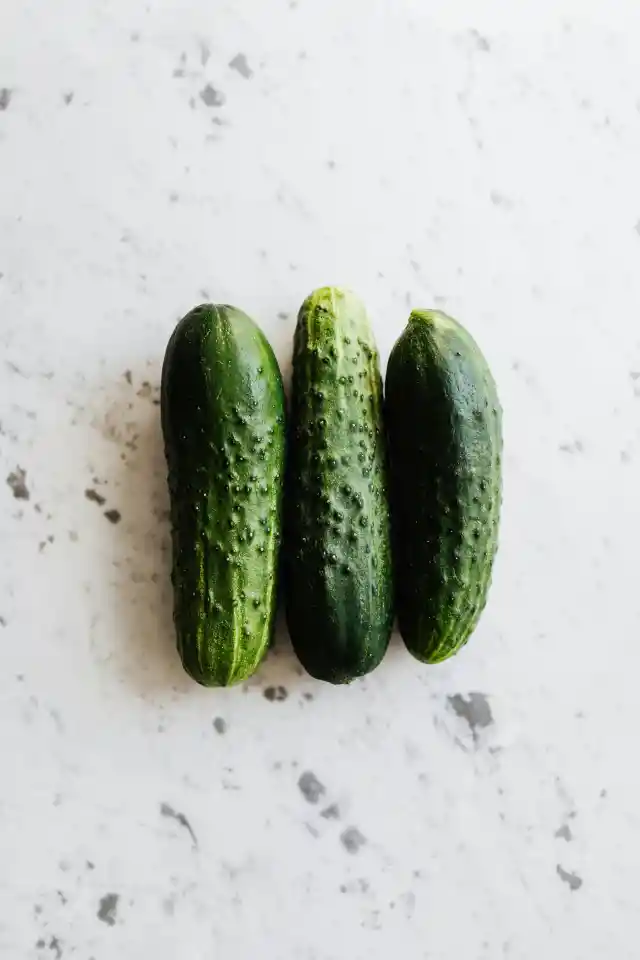

These nutrients work together to support heart health and help ward off cardiovascular disease.
Matcha
Matcha is the most concentrated form of green tea, making it a powerhouse when it comes to health benefits. A single cup offers up to 10 times more antioxidants than standard green tea.
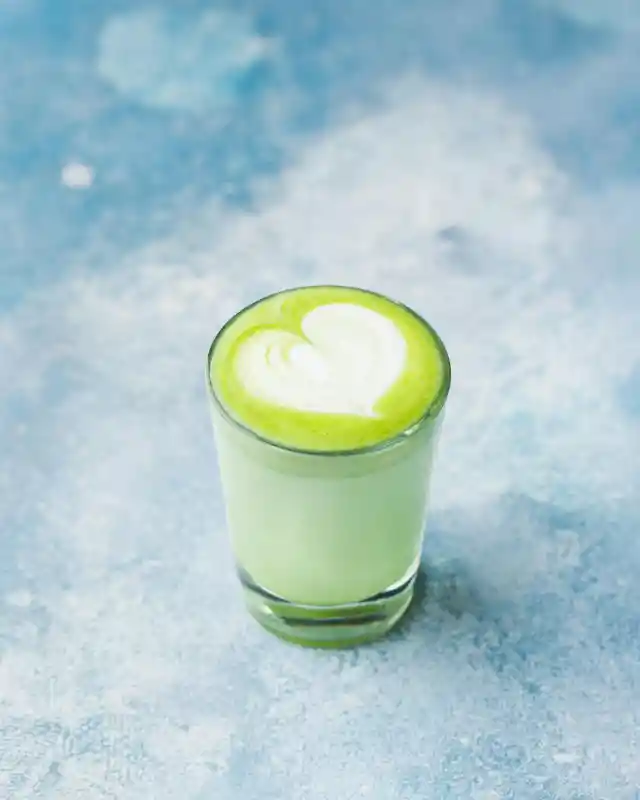

It’s also rich in nutrients like chromium, magnesium, zinc, and vitamin C, all of which support overall wellness and boost the immune system.
Onion
Onions are more than just a flavorful addition to your meals—they’re a heart-healthy vegetable packed with benefits. Rich in antioxidants and beneficial compounds, onions can help lower blood pressure and reduce the risk of heart attacks.
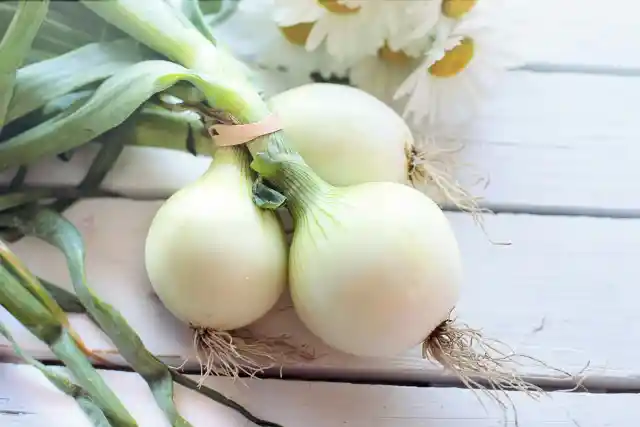

Their anti-inflammatory properties also contribute to better cardiovascular health overall.
Lemon
Lemons not only brighten up your meals with their tangy flavor, but they also come packed with health perks.


They’re rich in vitamin C, fiber, and powerful plant compounds that support immune function and promote heart health. Adding lemon to your diet can help reduce inflammation and improve overall wellness.
Peanuts
Much like their creamy counterpart, peanuts are great for heart health thanks to their high content of monounsaturated fats.


They also help lower the risk of stroke and heart attacks. In addition, peanuts provide antioxidants and are a good source of copper, supporting overall cardiovascular function.
Wheatgrass
Wheatgrass is a versatile health supplement that can be taken as juice or in tablet form—since the raw leaves are tough to digest, most avoid them.
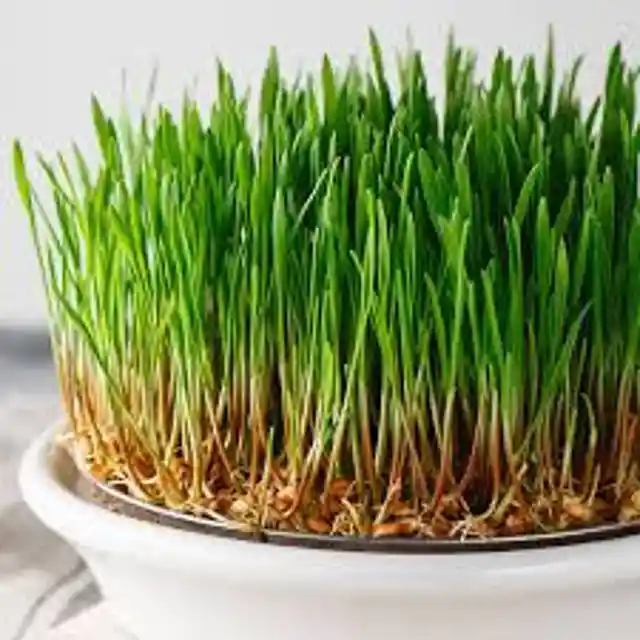
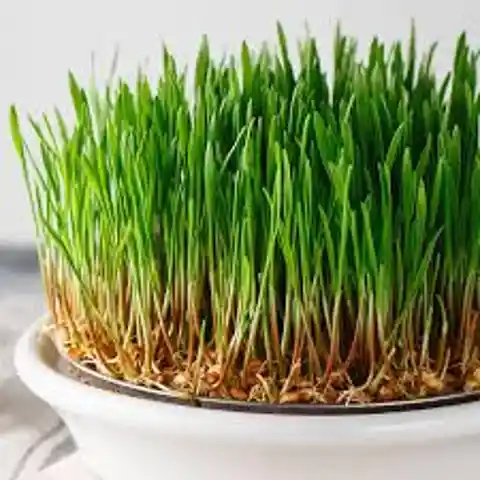
This superfood is rich in vitamins A, C, and E, and it also delivers iron, B vitamins, and powerful antioxidants. Just remember to steer clear if you’re allergic to wheat, grass, or gluten.
Sunflower Seeds
Although sunflower seeds are high in oil, it’s a natural plant-based oil packed with healthy polyunsaturated fats. In fact, they’re great for you!


These seeds are also rich in essential nutrients like copper, magnesium, and vitamin E, all of which support overall wellness and heart health.
Hemp Seeds
If you're looking to boost your protein intake naturally, hemp seeds are a fantastic choice. They provide all the essential amino acids your body needs, including arginine, which supports cardiovascular health.
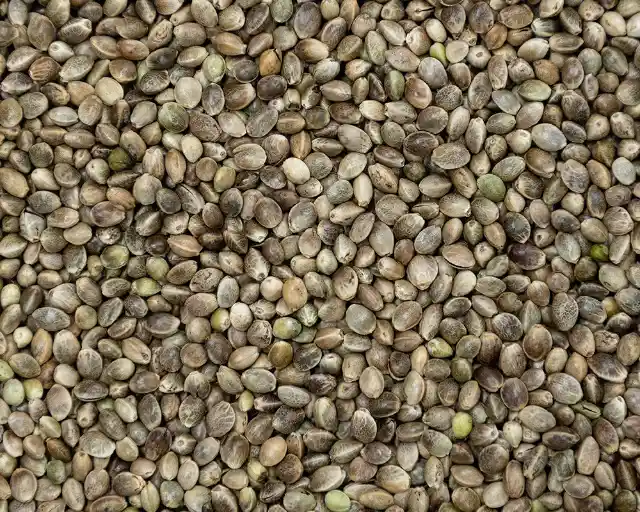
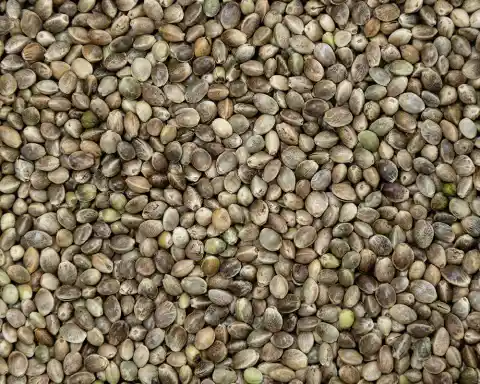
On top of that, they’re loaded with heart-healthy omega-3 fatty acids and unsaturated fats. These tiny seeds also deliver a solid dose of fiber, magnesium, potassium, and vitamins B6 and E—making them a powerhouse addition to any diet.
Mushrooms
Although mushrooms sometimes get a bad rap, they’re actually packed with health benefits. These nutrient-rich fungi are fat-free, high in fiber, and loaded with essential vitamins and minerals. They’re a great source of copper, potassium, antioxidants, and B vitamins.


Plus, their versatility in cooking makes them an easy and delicious addition to almost any meal. With all these benefits, mushrooms definitely deserve a spot in your regular diet.
Whole Grains
Whole grains are made up of all three parts of the grain kernel: the germ, endosperm, and bran. Popular options include whole wheat, brown rice, oats, rye, barley, buckwheat, and quinoa.
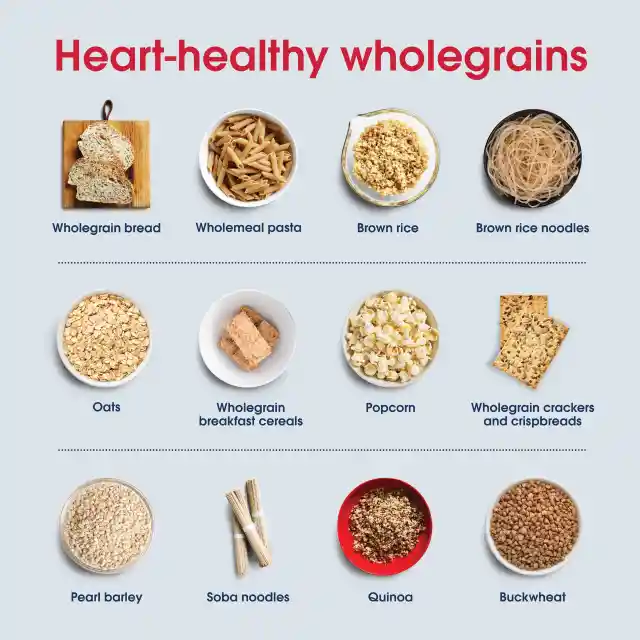
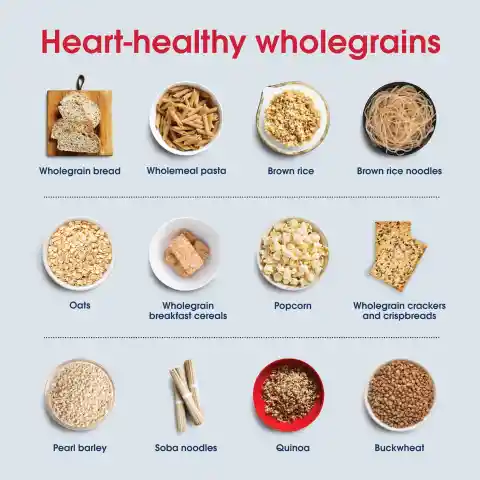
Unlike refined grains, whole grains retain their fiber and nutrient content, which plays a key role in reducing LDL cholesterol and lowering the risk of heart disease.
Tofu
Tofu is an excellent source of vegetarian soy protein, packed with heart-friendly minerals, fiber, and polyunsaturated fats.


Its sponge-like texture allows it to soak up the flavors of any spices or sauces you cook it with. Including tofu in soups is a great way to boost protein intake without adding much fat.
Swiss chard
This leafy dark green vegetable is loaded with health benefits, boasting high levels of potassium and magnesium—key minerals that help regulate blood pressure.
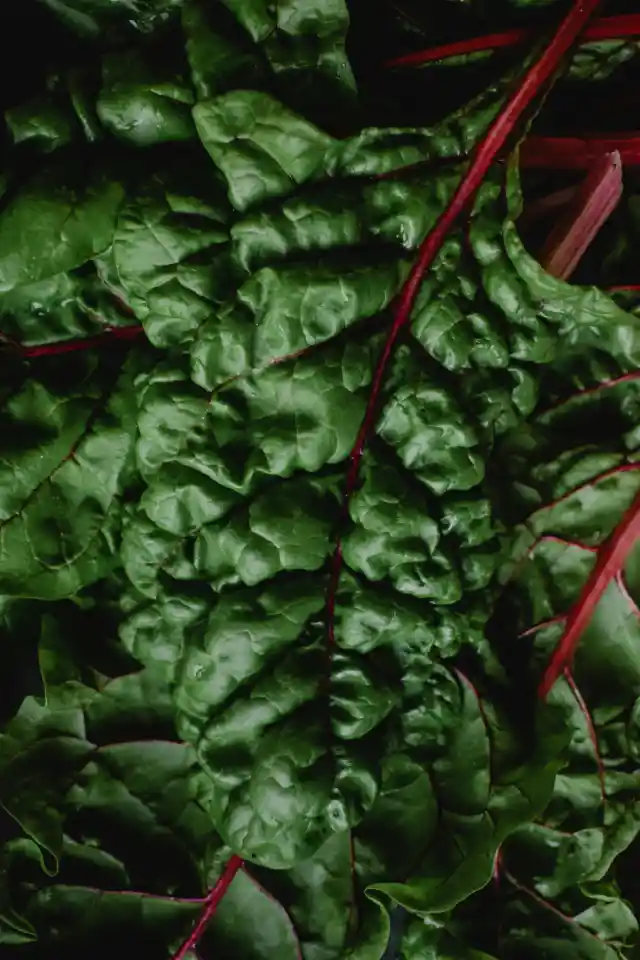

Swiss chard is also rich in heart-friendly fiber, vitamin A, and antioxidants like lutein and zeaxanthin. For a tasty serving, try it alongside grilled meats or as a flavorful bed for fish.
Cherries
Cherries come in a variety of types, and no matter the form, they make a tasty and nutritious snack.
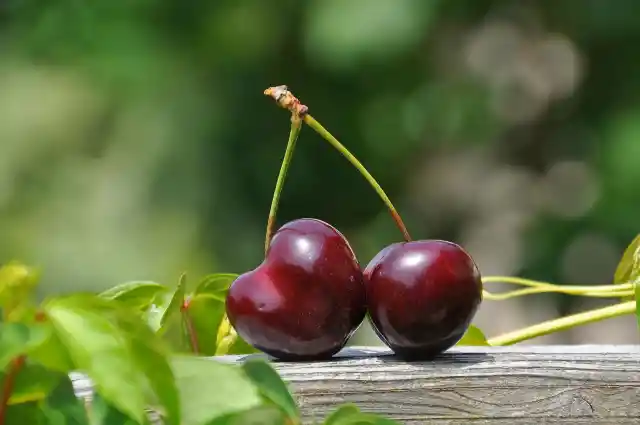

Each variety is rich in anthocyanins, antioxidants that support the health of your blood vessels. You can enjoy cherries by adding them to cereal, muffin mixes, salads, or even rice dishes for a flavorful boost.
Oats
Oats are packed with soluble fiber, making them a powerful ally in reducing cholesterol and supporting heart health.


Regular consumption can also aid in stabilizing blood sugar and maintaining a healthy weight, making oats a smart addition to your daily diet.
Amaranth
Amaranth is a gluten-free pseudo-grain loaded with fiber, protein, and antioxidants.
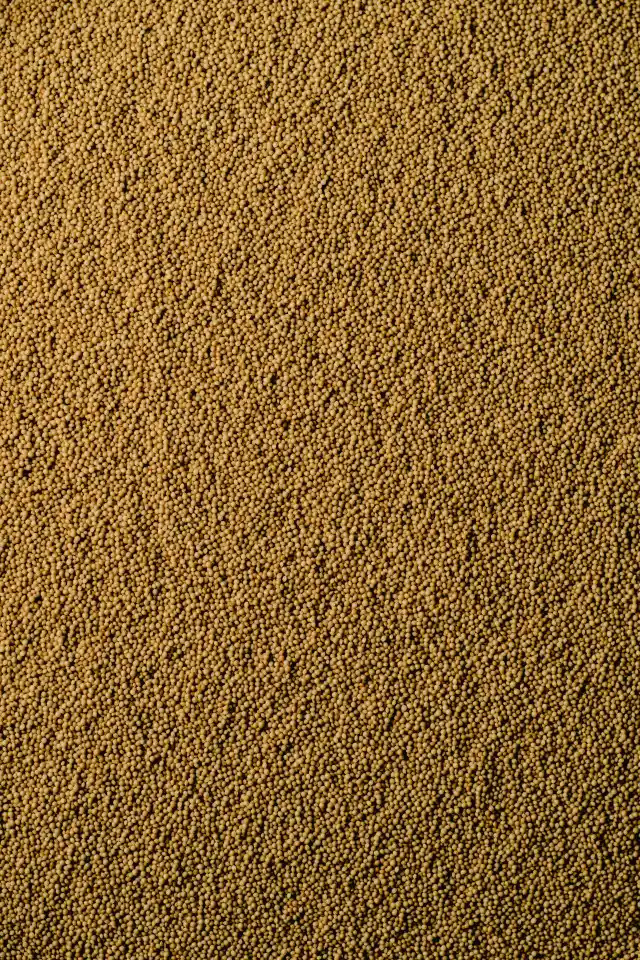

Its impressive nutrient profile helps lower inflammation and improve cholesterol levels, making it a heart-healthy choice for any diet.
Flaxseeds
Don’t let their small size fool you—flaxseeds are loaded with heart-friendly nutrients.


Rich in omega-3 fatty acids, fiber, and lignans (powerful plant antioxidants), these seeds can help lower cholesterol and cut your risk of heart disease when added to your meals.
Beetroot
This vibrant root vegetable is packed with natural nitrates that help relax blood vessels, lower blood pressure, and boost circulation.


Regularly including beetroot in your diet may support heart health and help reduce the risk of cardiovascular issues.
Kimchi
This traditional Korean fermented dish, usually made from cabbage and spices, is loaded with probiotics and antioxidants.


Thanks to its anti-inflammatory properties and gut-boosting benefits, kimchi may contribute to better heart health and overall wellness.
Mung Beans
Mung beans are nutrient-dense legumes rich in fiber, plant-based protein, vitamins, and essential minerals.
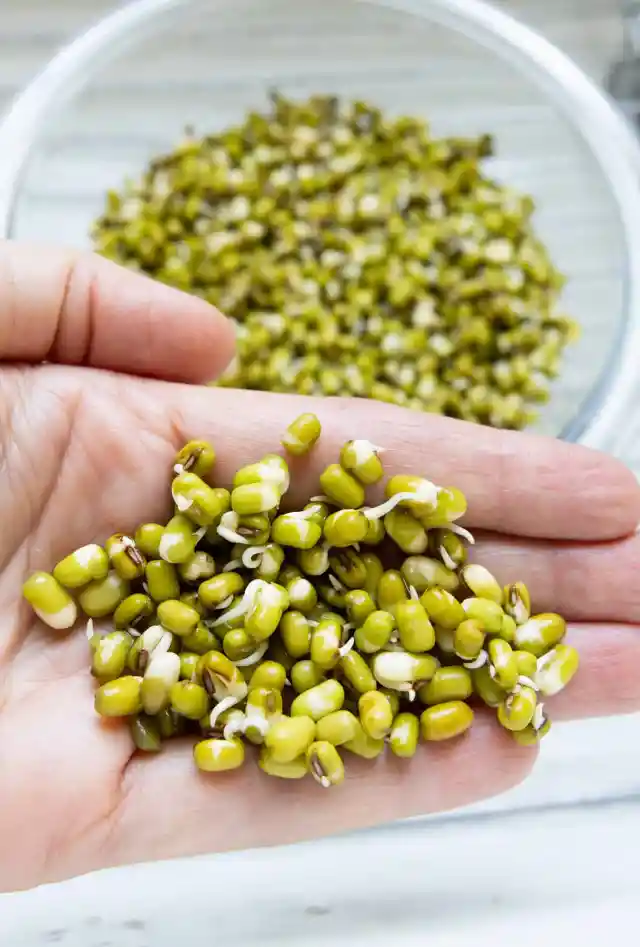
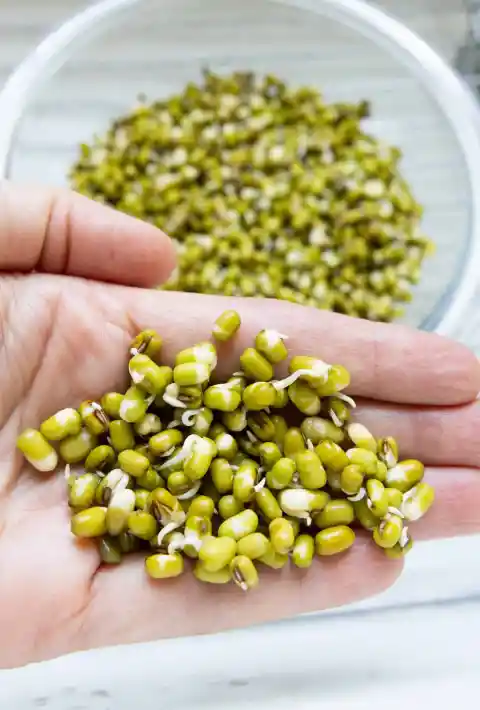
Including them in your diet may help reduce cholesterol, support heart health, and promote overall wellness.
Kefir
Kefir is a probiotic-rich fermented dairy drink that supports gut health and may benefit the heart as well.
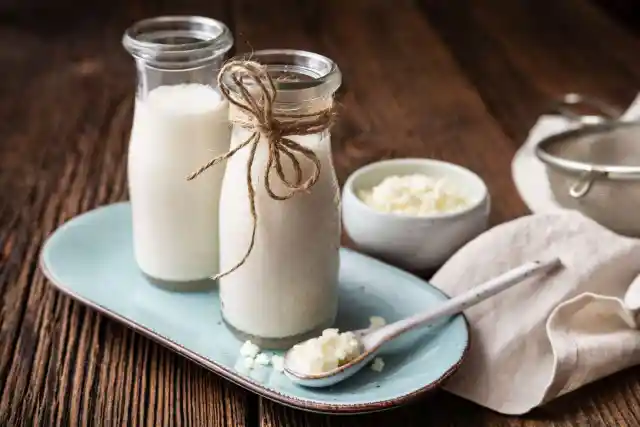

Regular consumption can help lower cholesterol and reduce inflammation, contributing to overall cardiovascular wellness.
Red Yeast Rice
Red yeast rice is a fermented rice product commonly used in traditional Chinese medicine.
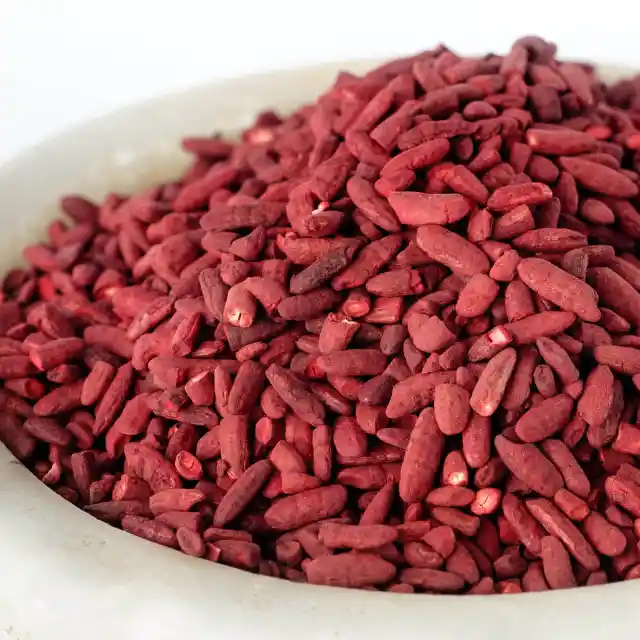
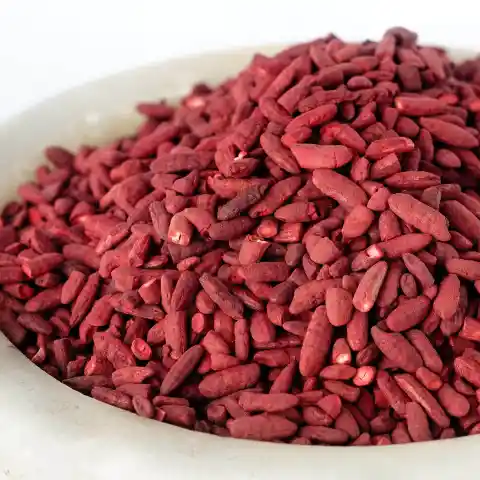
It contains monacolins, natural compounds similar to statins, which help lower cholesterol. Including red yeast rice in your diet may support heart health and reduce the risk of cardiovascular disease.
Watercress
Watercress is a nutrient-dense leafy green loaded with vitamins, minerals, and powerful antioxidants.


Its anti-inflammatory properties and ability to help lower blood pressure make it a heart-friendly food worth adding to your meals.
Buckwheat
Buckwheat is a naturally gluten-free whole grain packed with fiber, plant-based protein, and antioxidants.
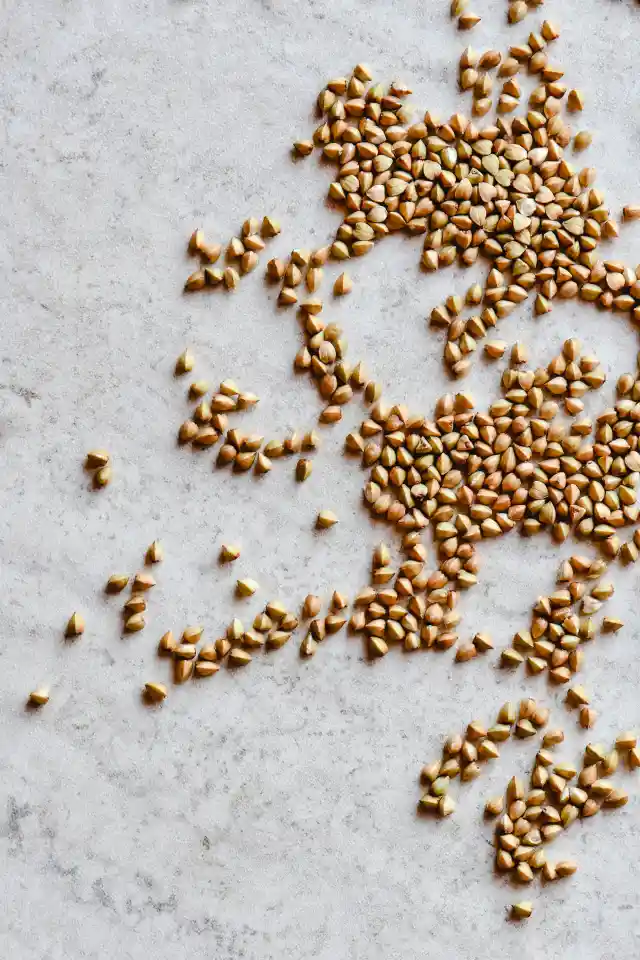
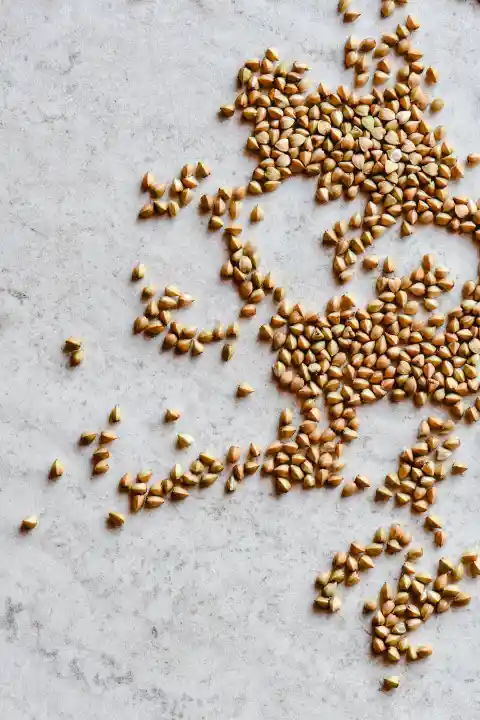
It supports heart health by helping to lower cholesterol and fight inflammation throughout the body.
Hibiscus Tea
Hibiscus tea is a herbal infusion loaded with antioxidants, especially flavonoids.


Drinking it can support heart health by helping to reduce blood pressure and improve cholesterol levels.
Red Cabbage
Red cabbage, a nutrient-packed cruciferous vegetable, is high in antioxidants like anthocyanins.


These compounds help promote heart health by lowering inflammation and enhancing the function of blood vessels.
Black Rice
Also called forbidden rice, black rice is a whole grain loaded with antioxidants, fiber, and vitamins.
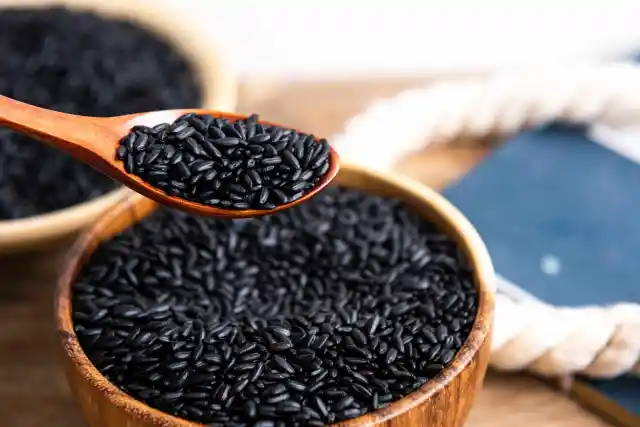
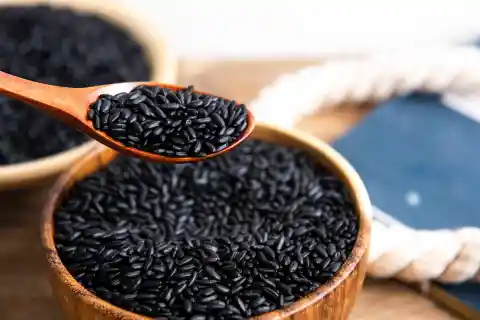
Its consumption supports heart health by helping to lower cholesterol and decrease inflammation throughout the body.
Tempeh
Tempeh is a fermented soy food packed with protein, probiotics, and essential minerals such as manganese and copper.


Adding tempeh to your meals can support heart health by helping to reduce cholesterol and lower the risk of cardiovascular disease.
Macadamia Nuts
Macadamia nuts are rich in heart-healthy monounsaturated fats, which can help raise good cholesterol (HDL) and lower bad cholesterol (LDL).


When incorporated into a balanced diet, they may significantly reduce the risk of heart disease and support overall cardiovascular health.